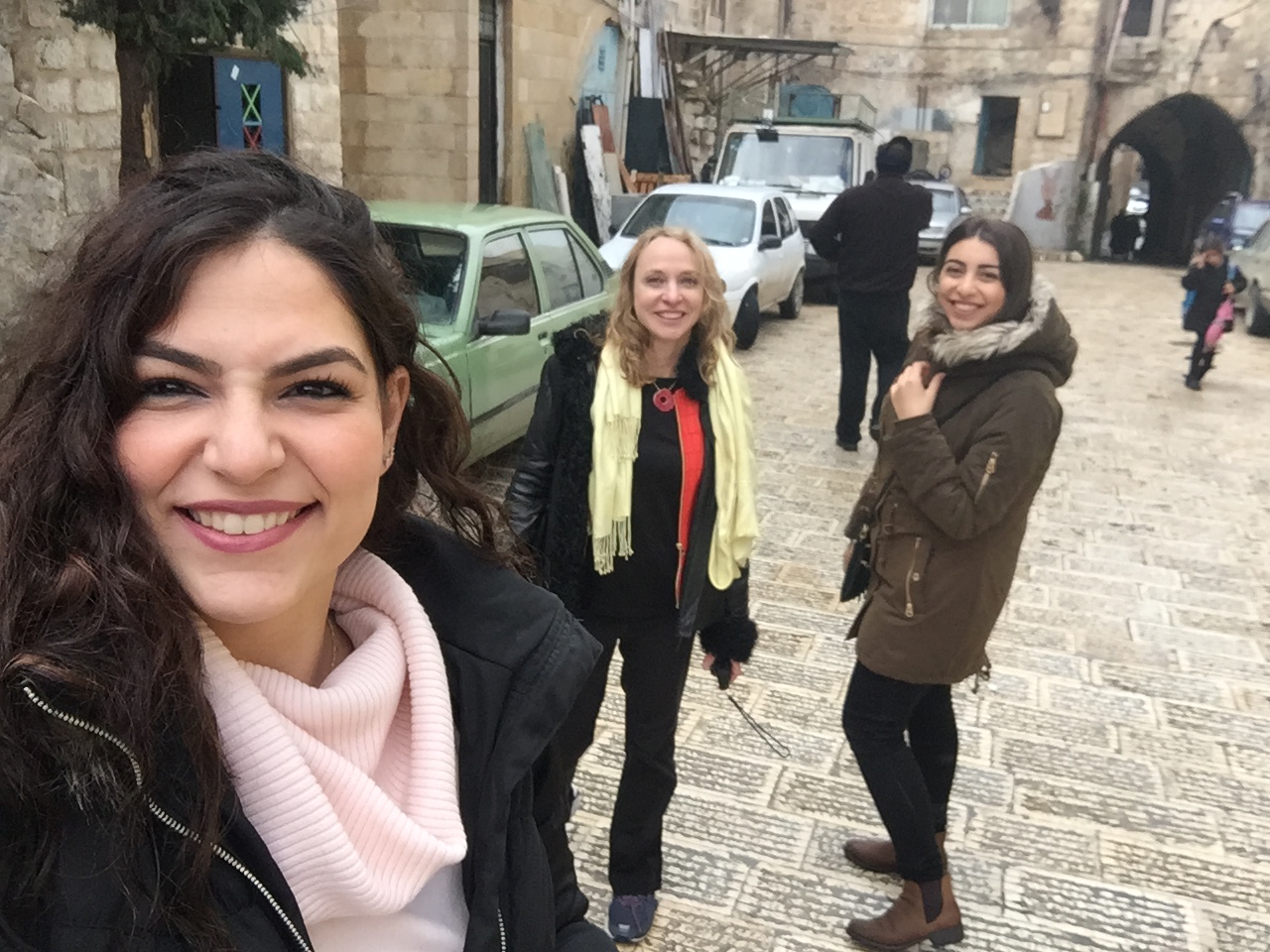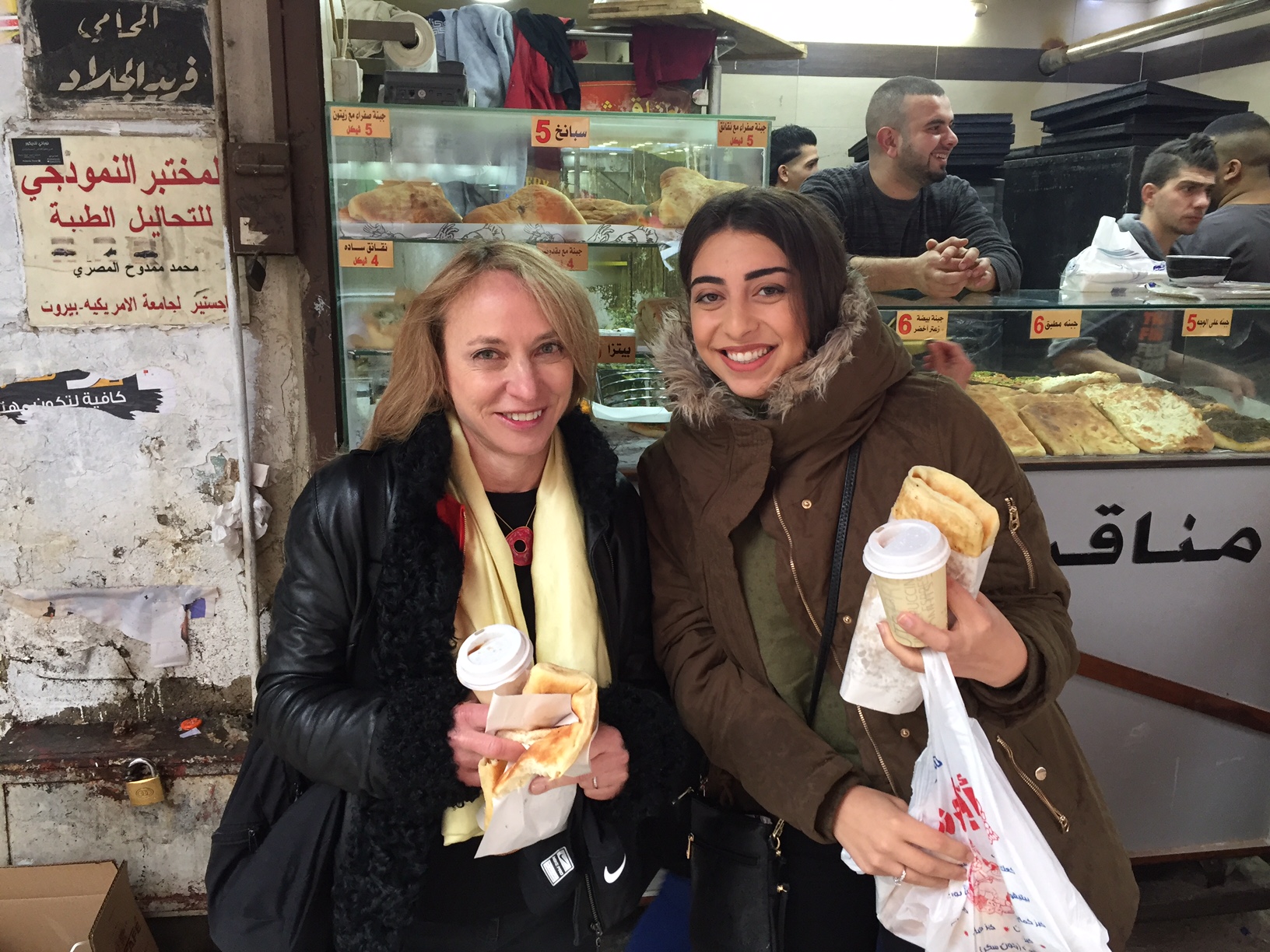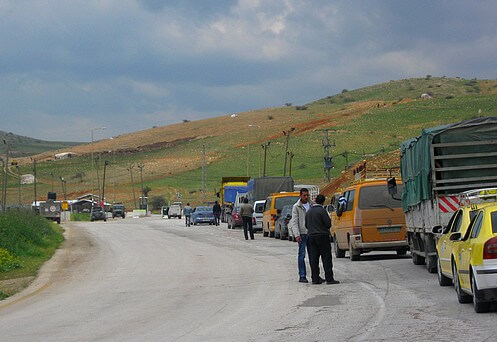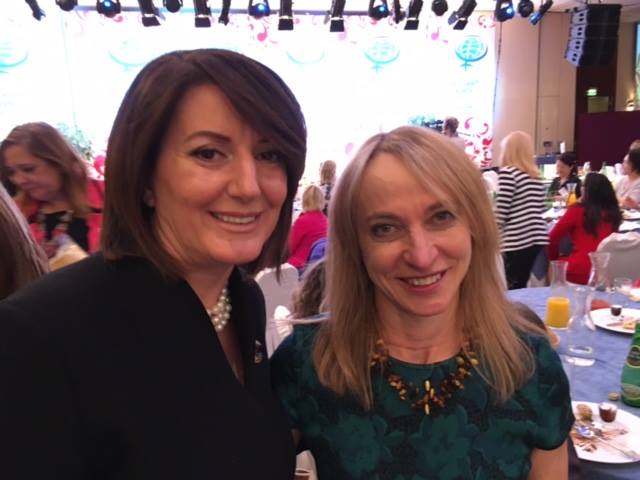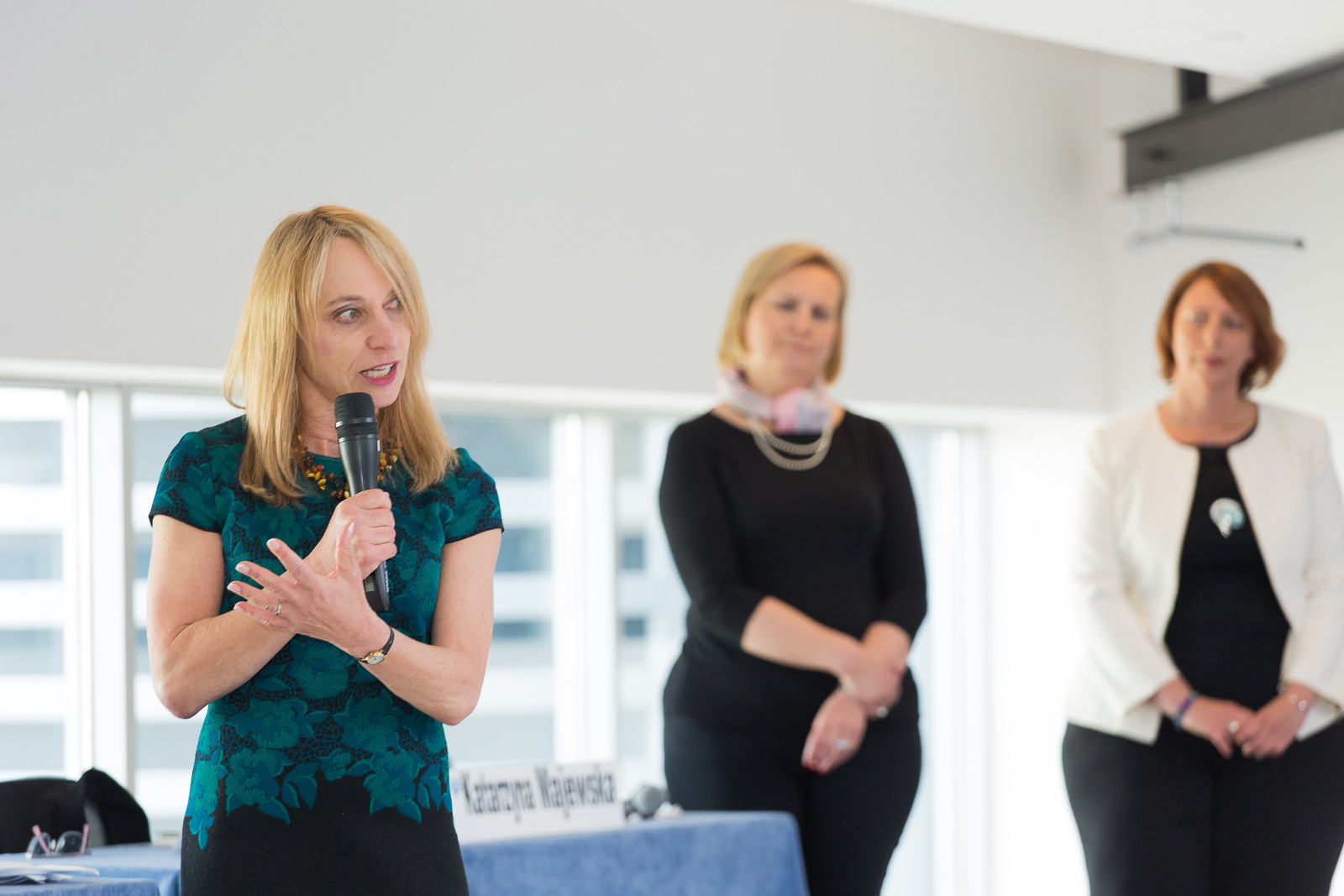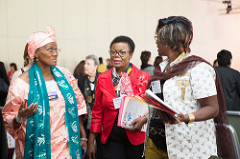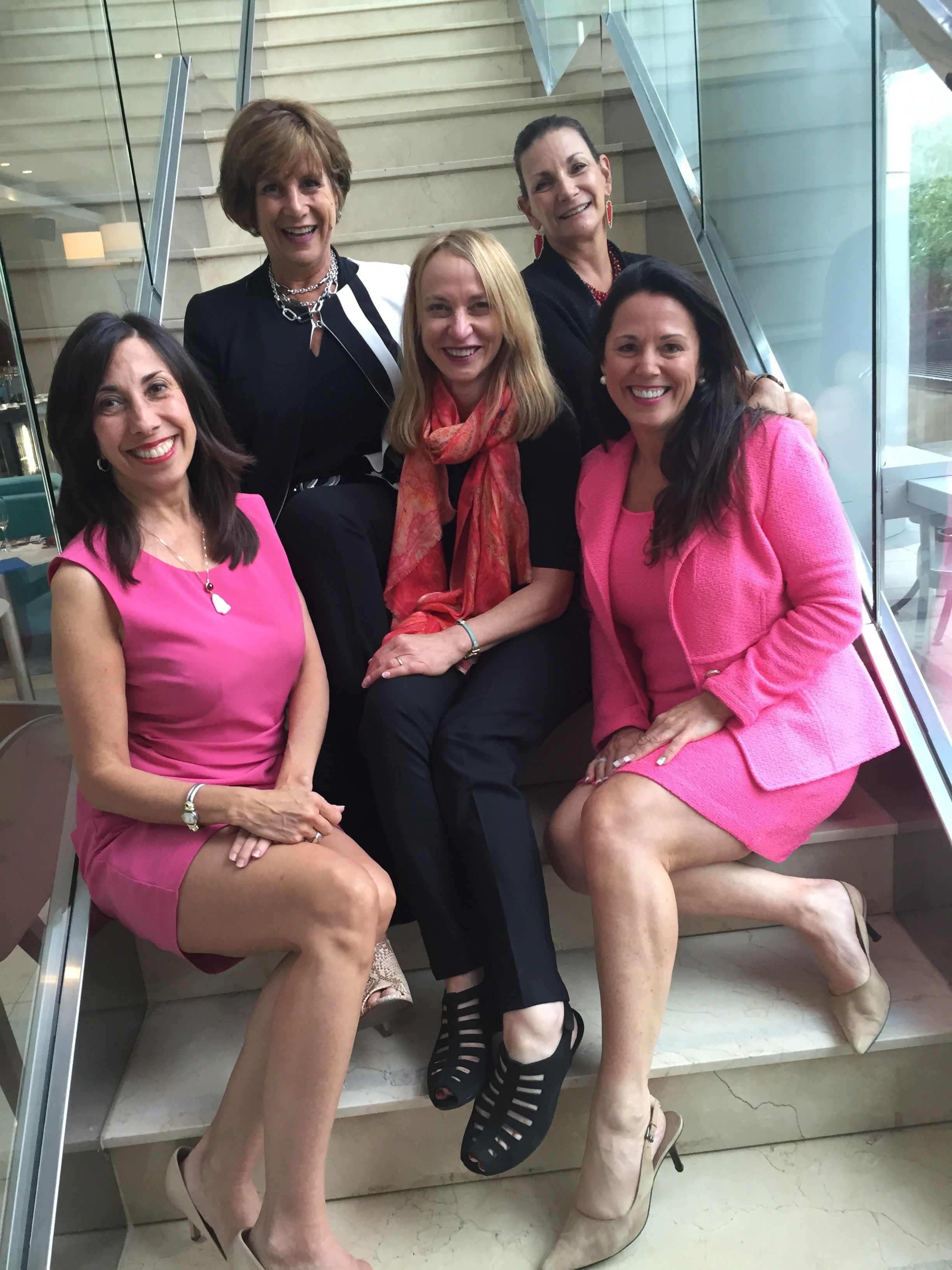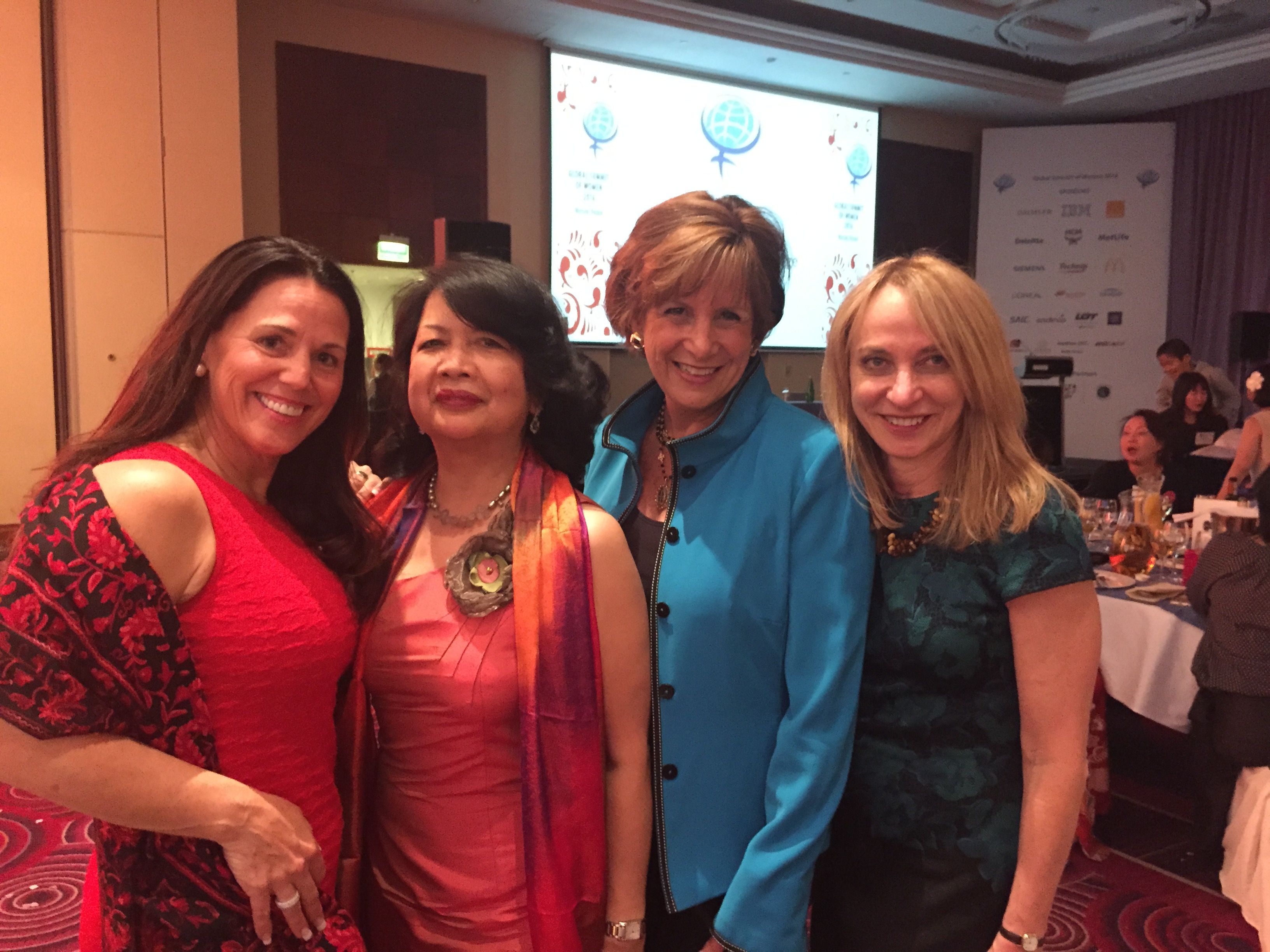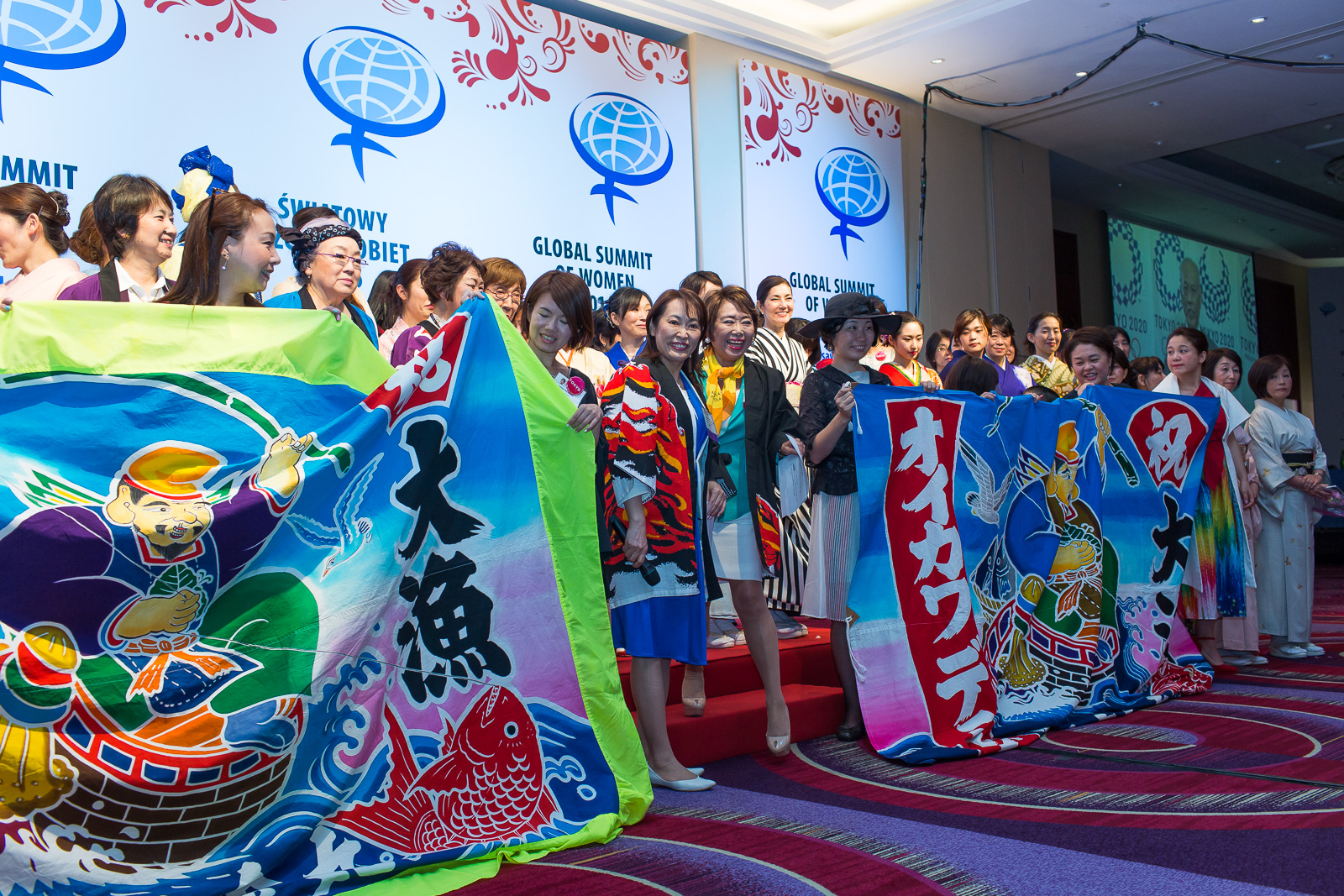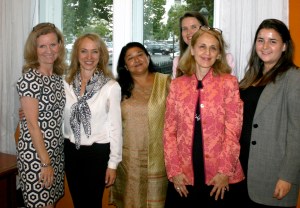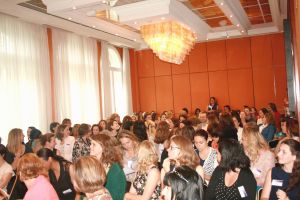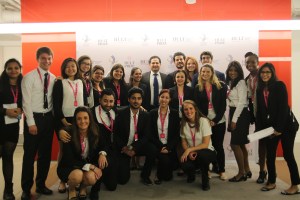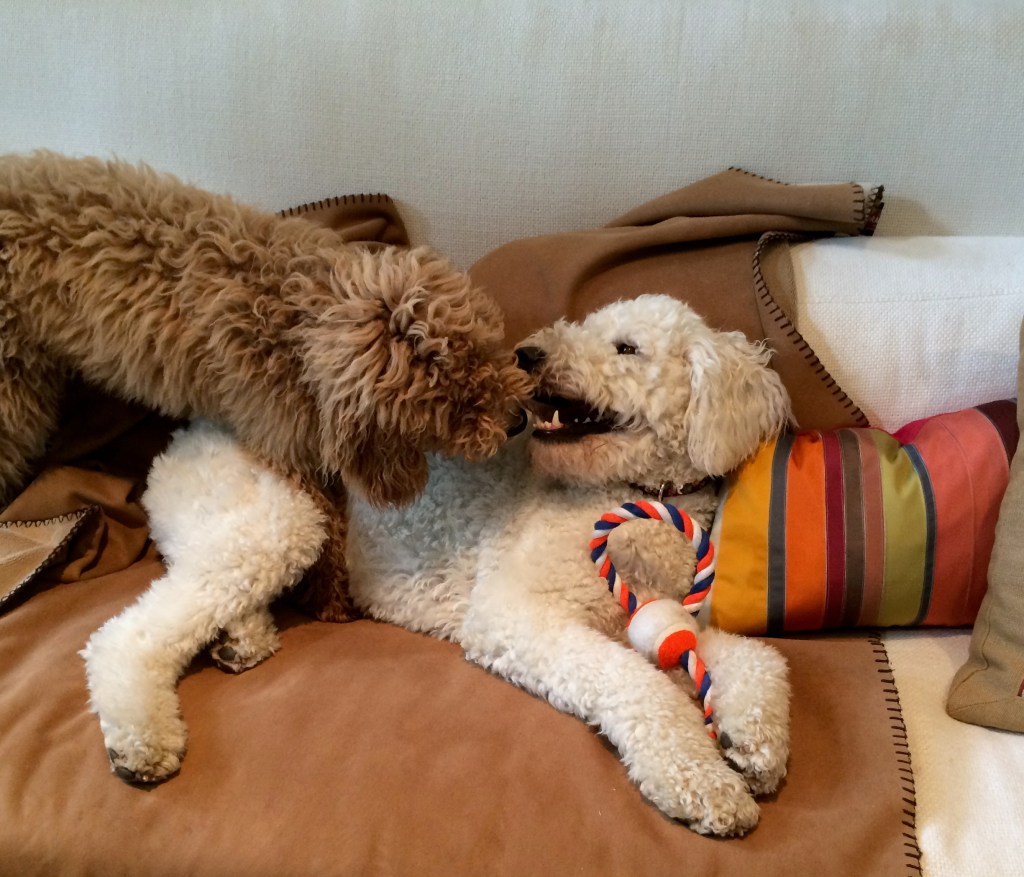
During the course of the past several years I have had the extreme good fortune to have lived and bonded with two very special dogs, Misha and Gabby (Gabriela), both of whom are goldendoodles (I have allergies so when the decision was made to bring home canine companions, I required a hypoallergenic breed).
Anyone who has raised, and bonded with, a dog and made him or her a part of their family understands the potential depth to which that relationship can go. Never having previously really lived with and raised a dog from puppyhood, I have been astonished at what a life changing experience it has been. Misha and Gabby have taught me far more about life, myself, and my place in the world than I will ever be able to teach them. They have changed me in ways I could never have imagined and have helped to make me a better person, for which I am consciously grateful on a daily basis.
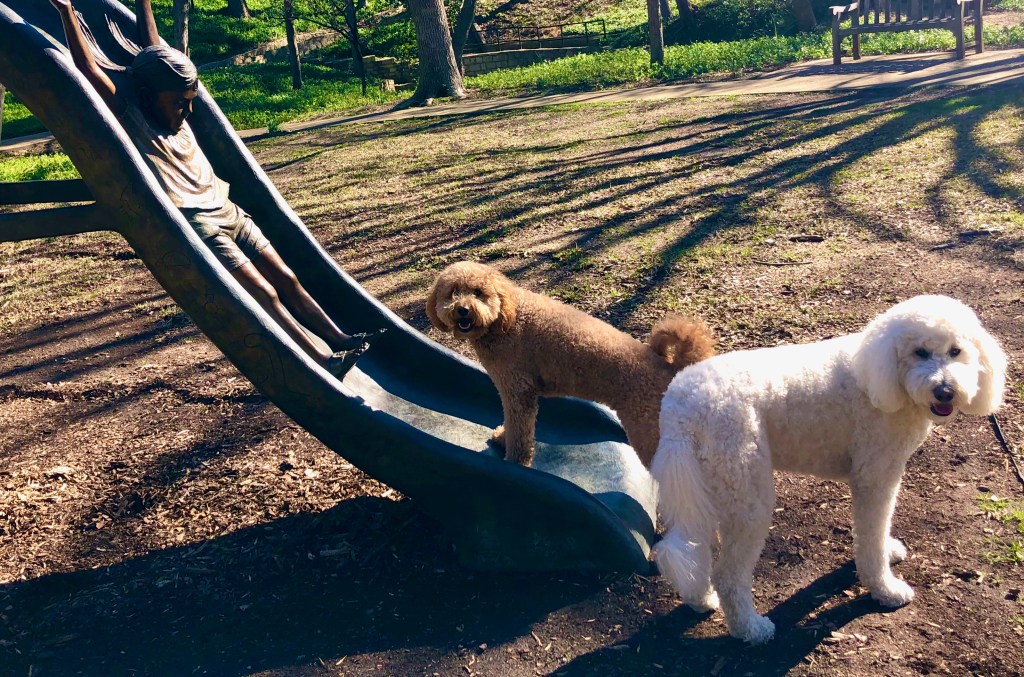
So, you might ask, what is it exactly that I have learned from these two special companions? The following is an effort on my part to compartmentalize specific ideas with the realization that some of them blend into each other, because in reality it has been an experiential continuum, so to speak, as opposed to an ordered list of specific unrelated items.


Lesson #1 Each Day is a New Day (these are not meant to be in any particular order) – Misha and Gabby have taught me that when we wake up every morning, it’s a new day. Think about that. Many of us tend to go through our days following a certain routine without the conscious consideration that each new day can be a fresh start full of unexpected surprises, positive developments, rewards, and treats.
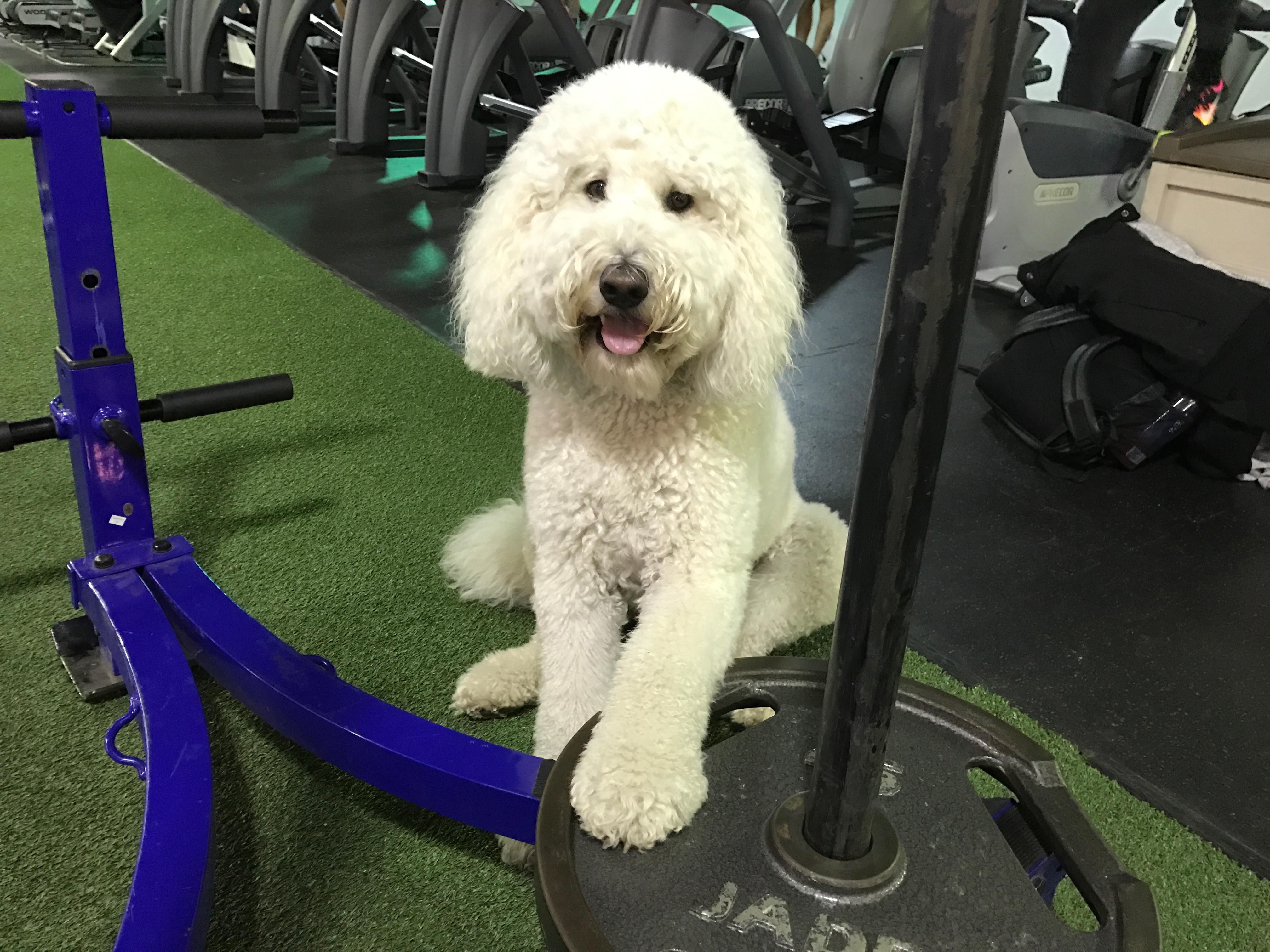
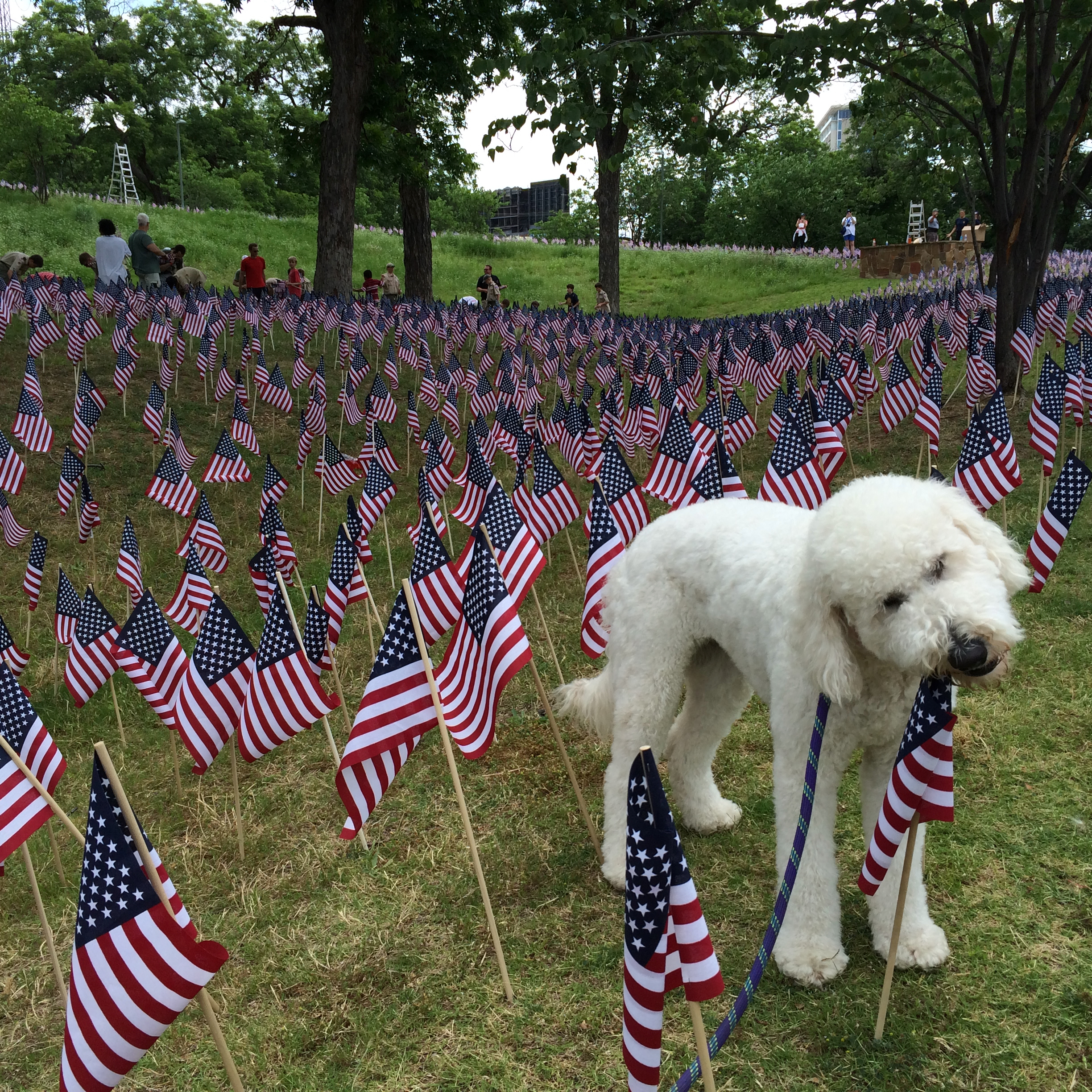

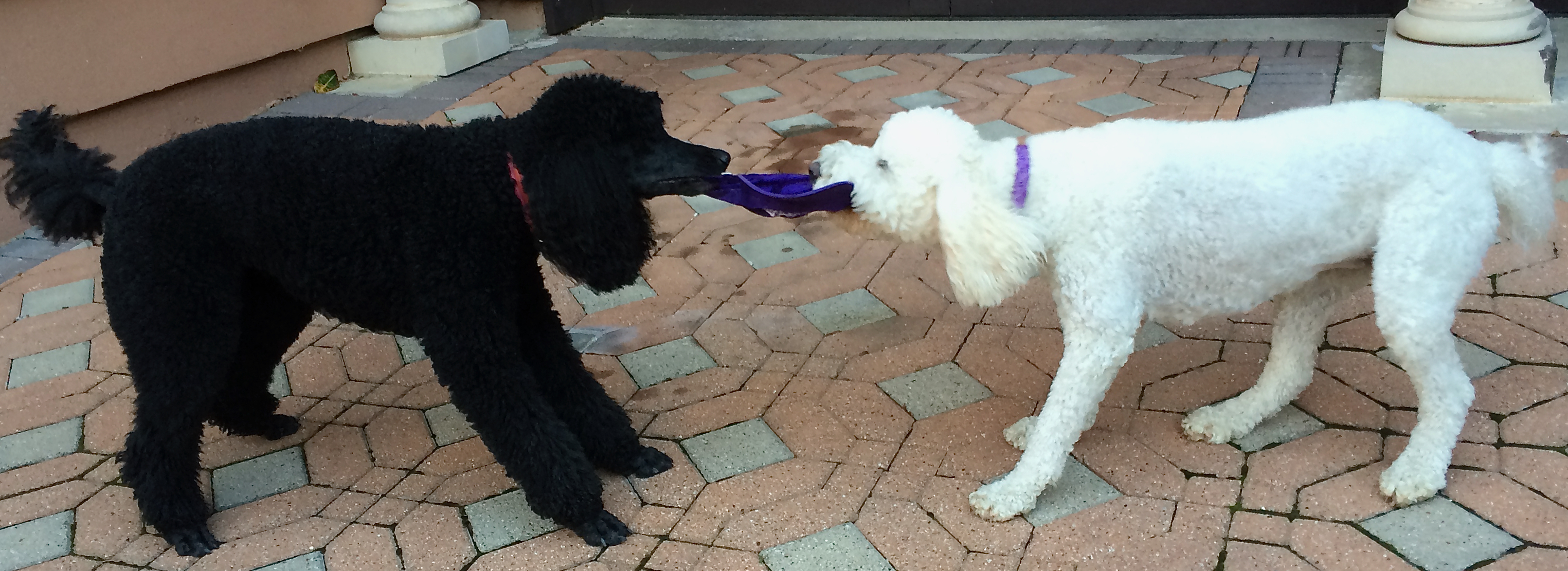
New smells, new things to explore, new sights, new friends. While it would be unrealistic to expect every day to be absolutely wonderful, and while even Misha and Gabby are most certainly creatures of habit who expect and thrive on a certain routine and structure to their day, I have learned when I awaken each morning to be open and optimistic to the possibilities that each new day may offer. Have some coffee, go for a walk, brush your teeth and your hair, and start the day open to, and prepared for, the possibility that something really good will happen. Greet the world with a wag in your tail.

Lesson #2 – Positive reinforcement works. Both Misha and Gabby are very well trained and highly socialized dogs, with humans and other dogs. A lot of time was spent on training and socializing them when they were puppies and only positive reinforcement was utilized at every step along the way. Neither of them has ever really even been verbally scolded.
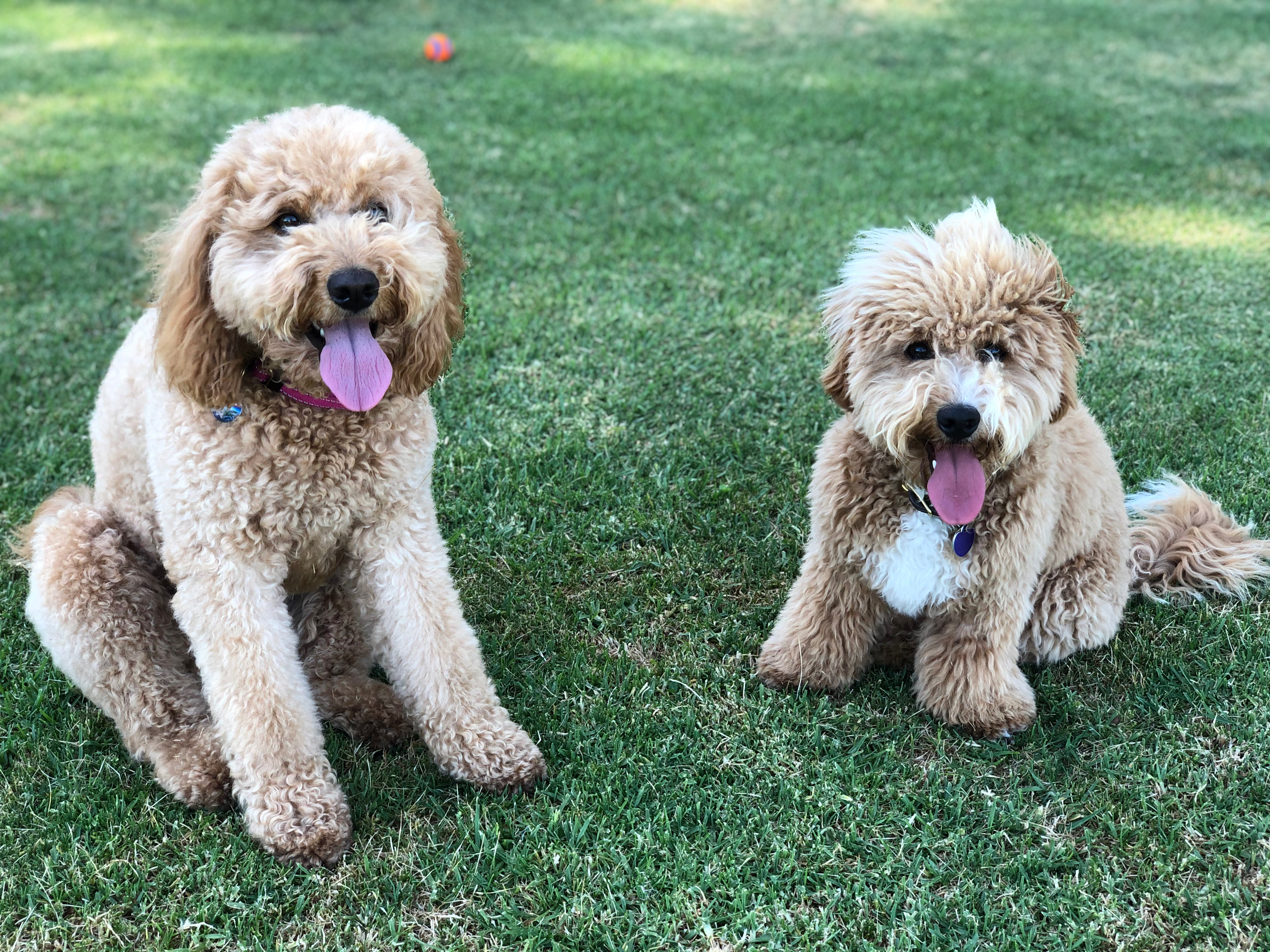

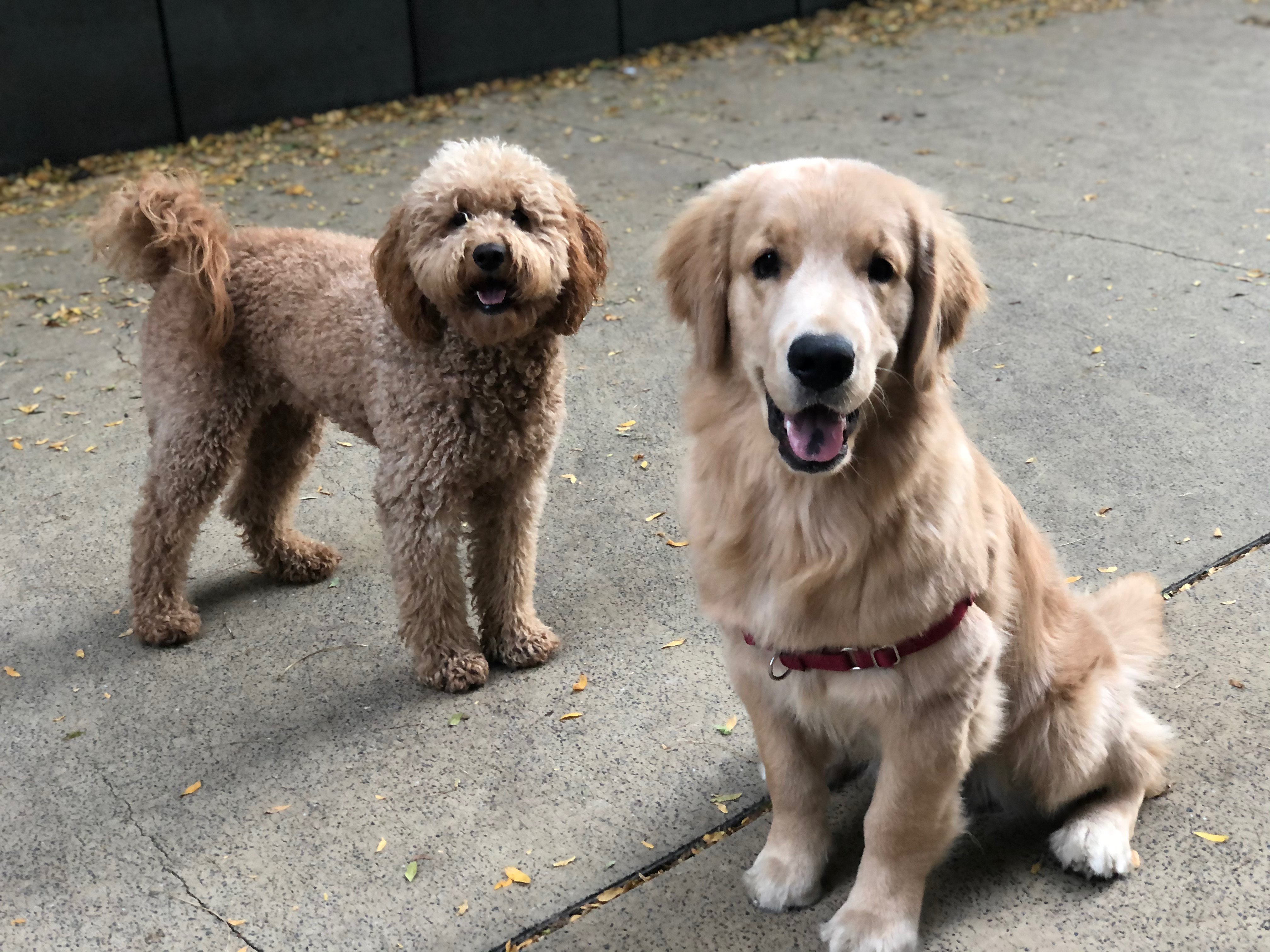
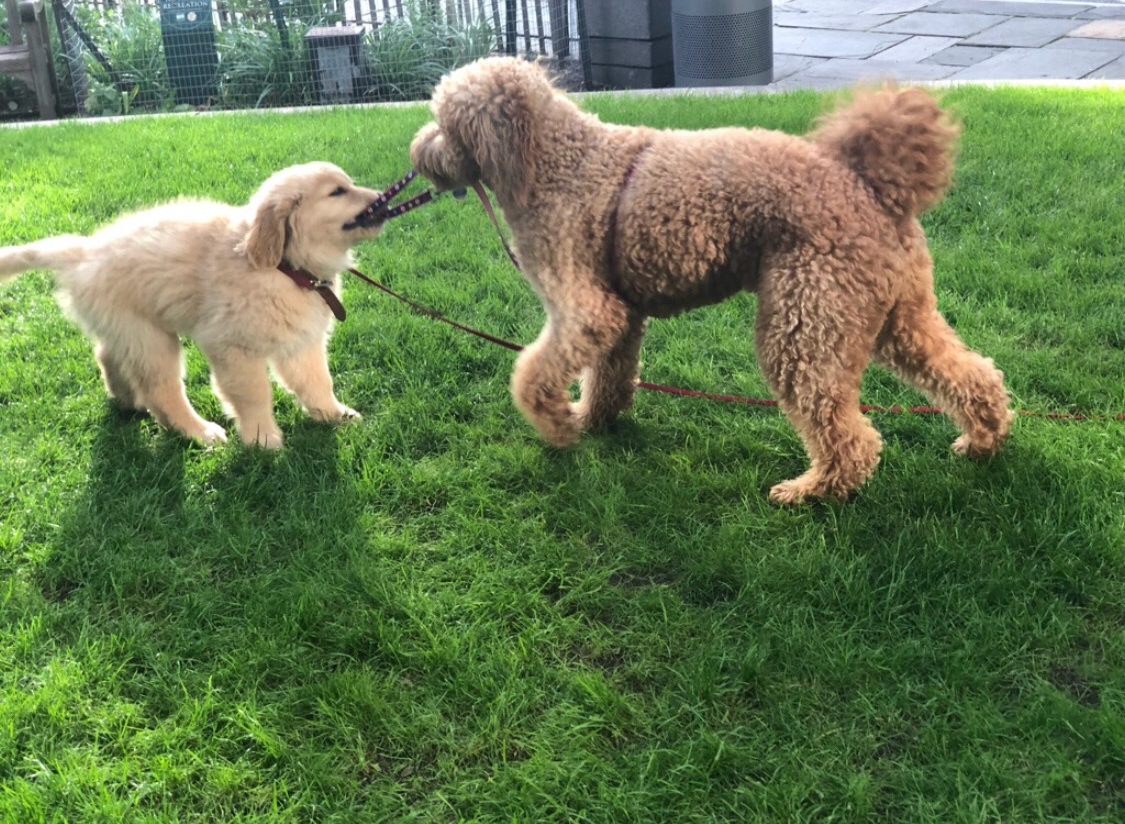
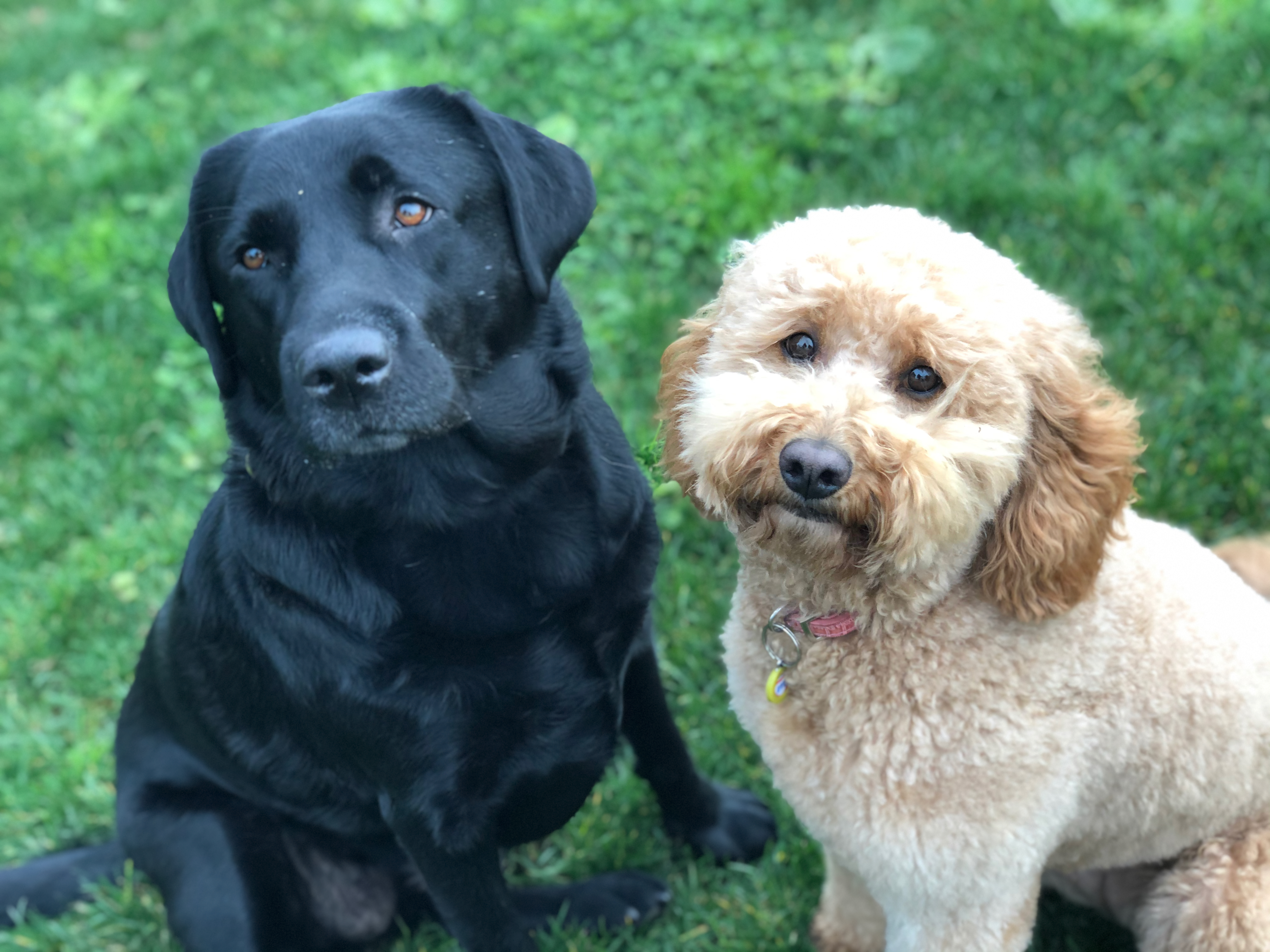




This approach has paid untold dividends in their adulthood which is evident on a daily basis. It has been my observation and experience in life and in the business world that negativity and negative reinforcement is usually counterproductive and almost never yields a satisfactory result. Be positive with others, use praise and compliments at every opportunity. As my parents often told me when I was very young, if you can’t say something positive about someone or something, don’t say anything at all.
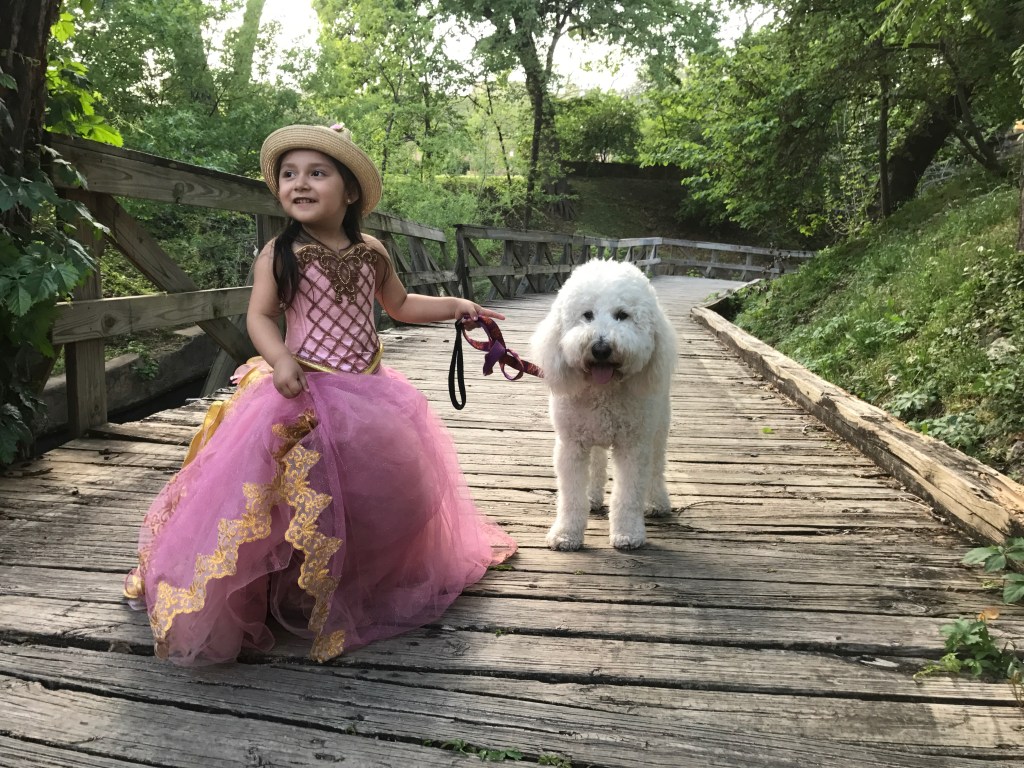
Lesson #3 – Be positive. Wag your tail! Smile when you greet others. Have an expectation of a good result when approaching people and circumstances that present themselves to you every day. Misha and Gabby are both very happy dogs, they live good lives with a loving and attentive owner, and it shows in how they physically approach both people and other dogs.
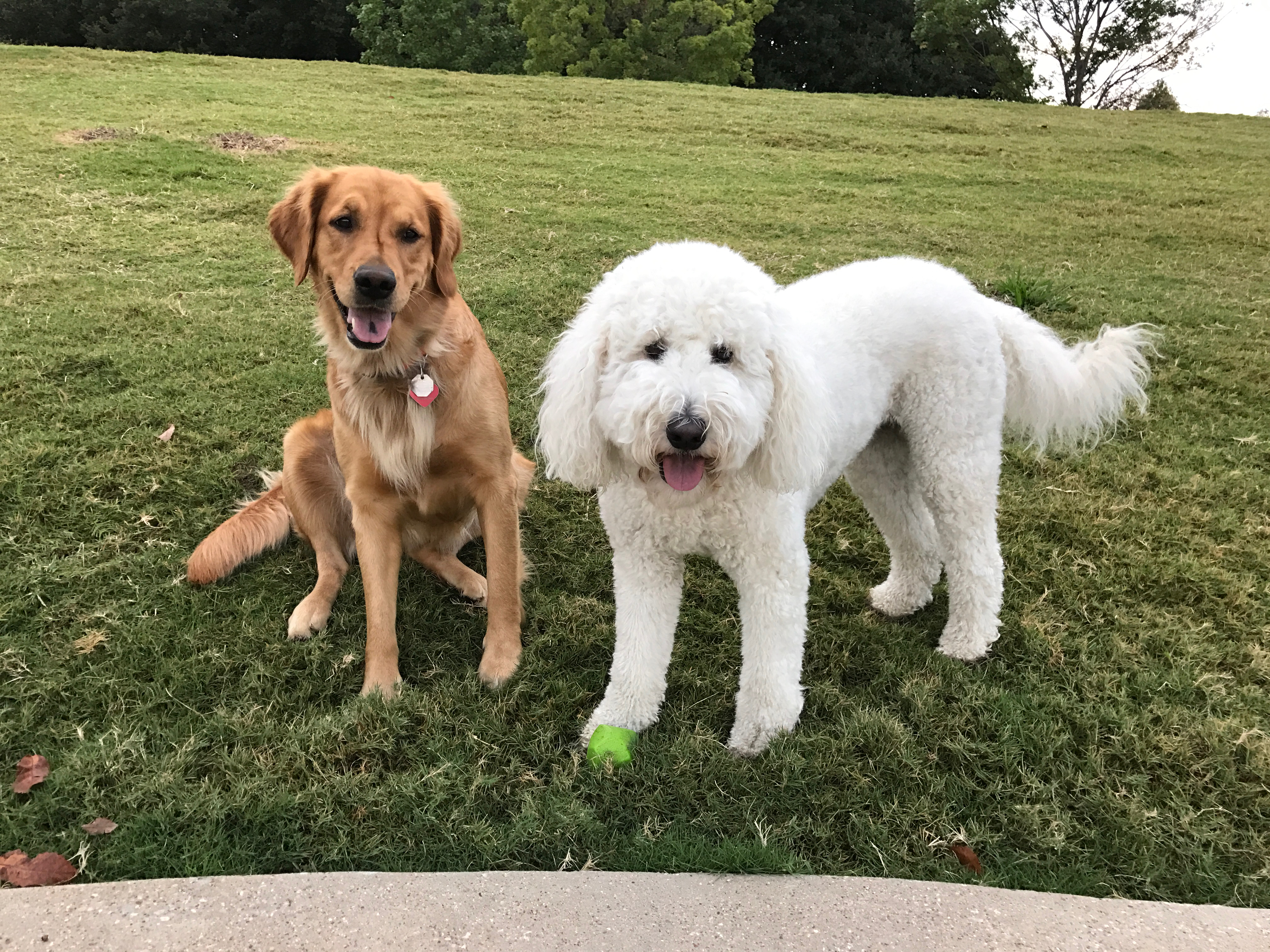
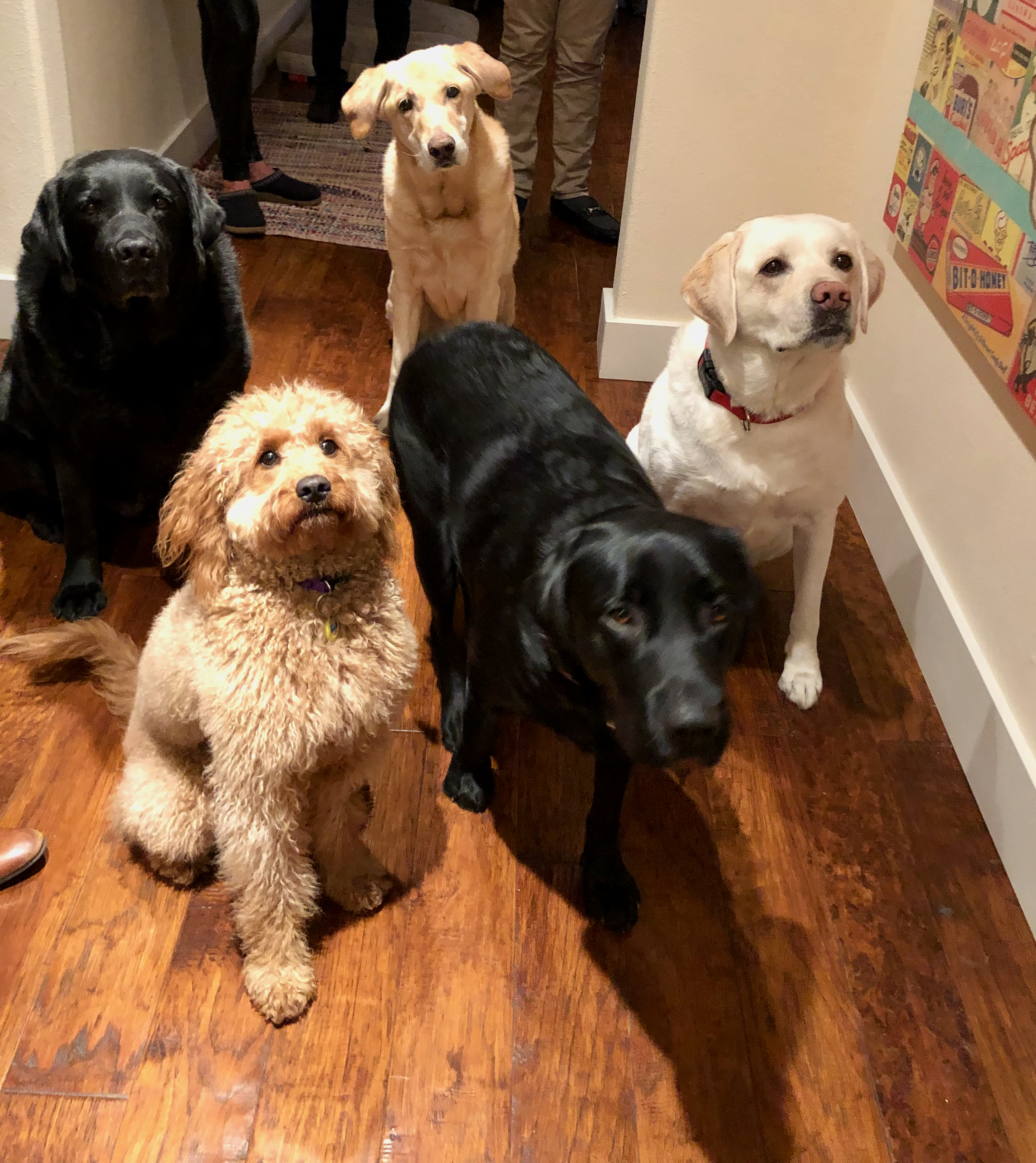
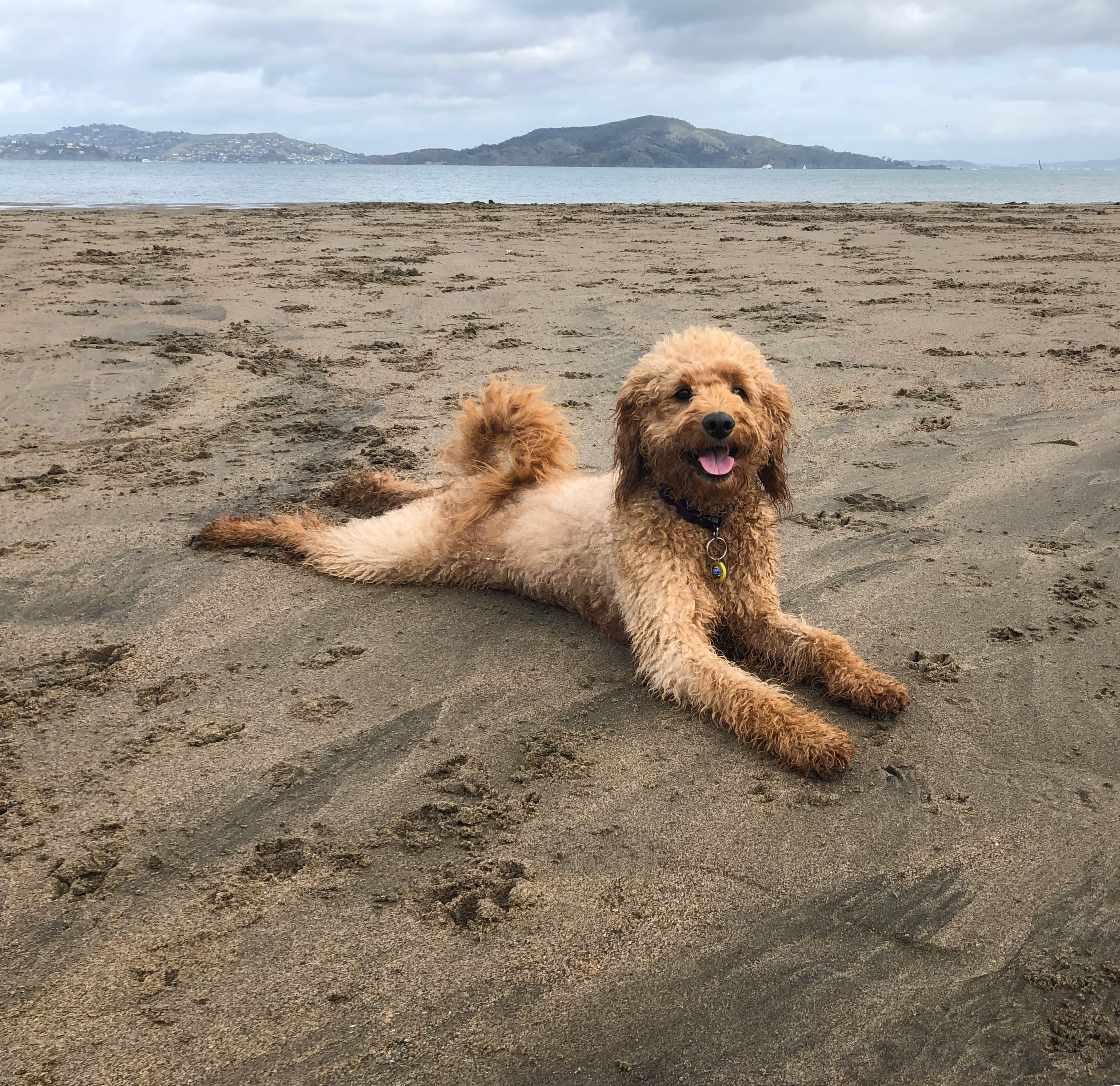


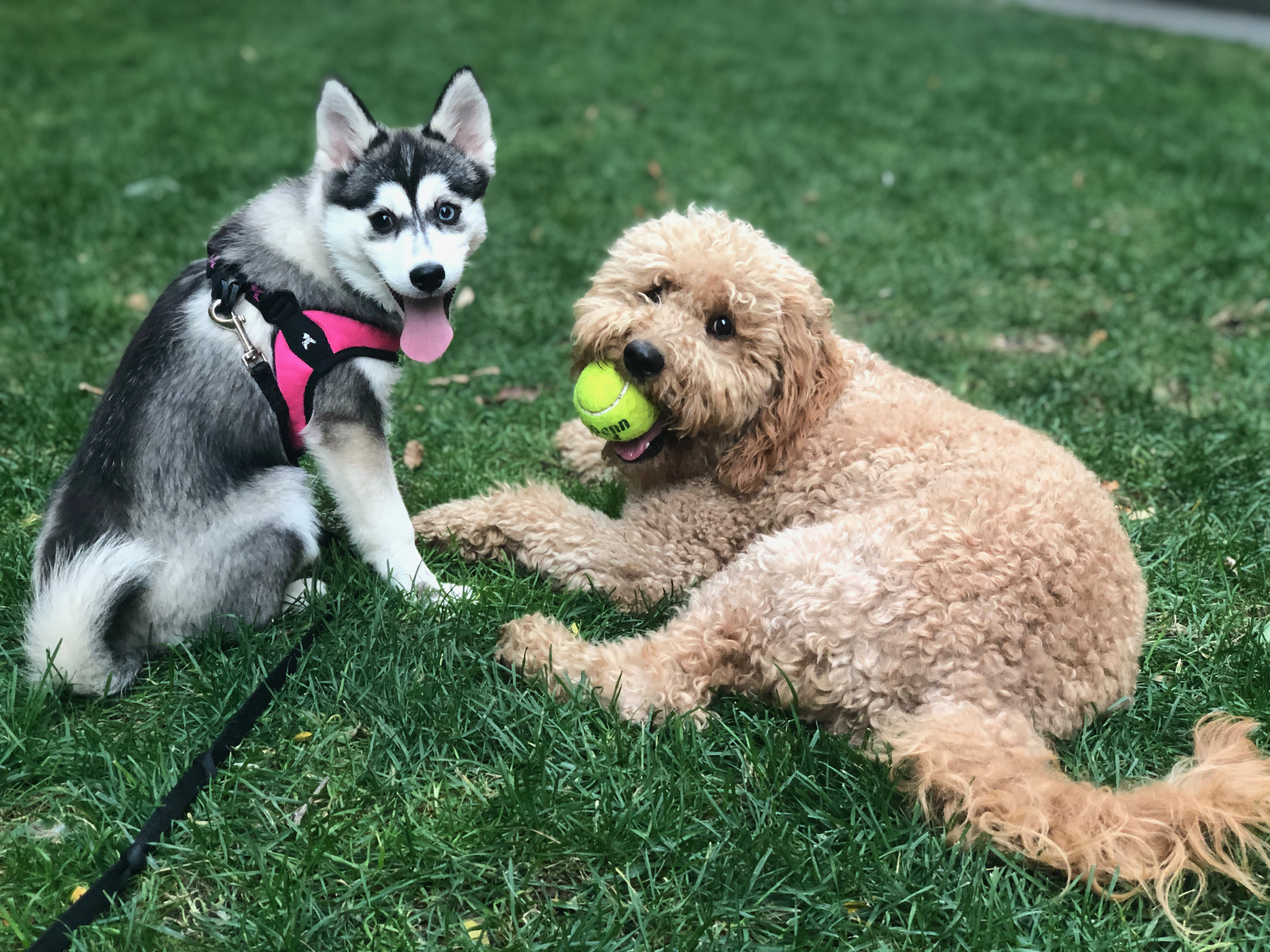
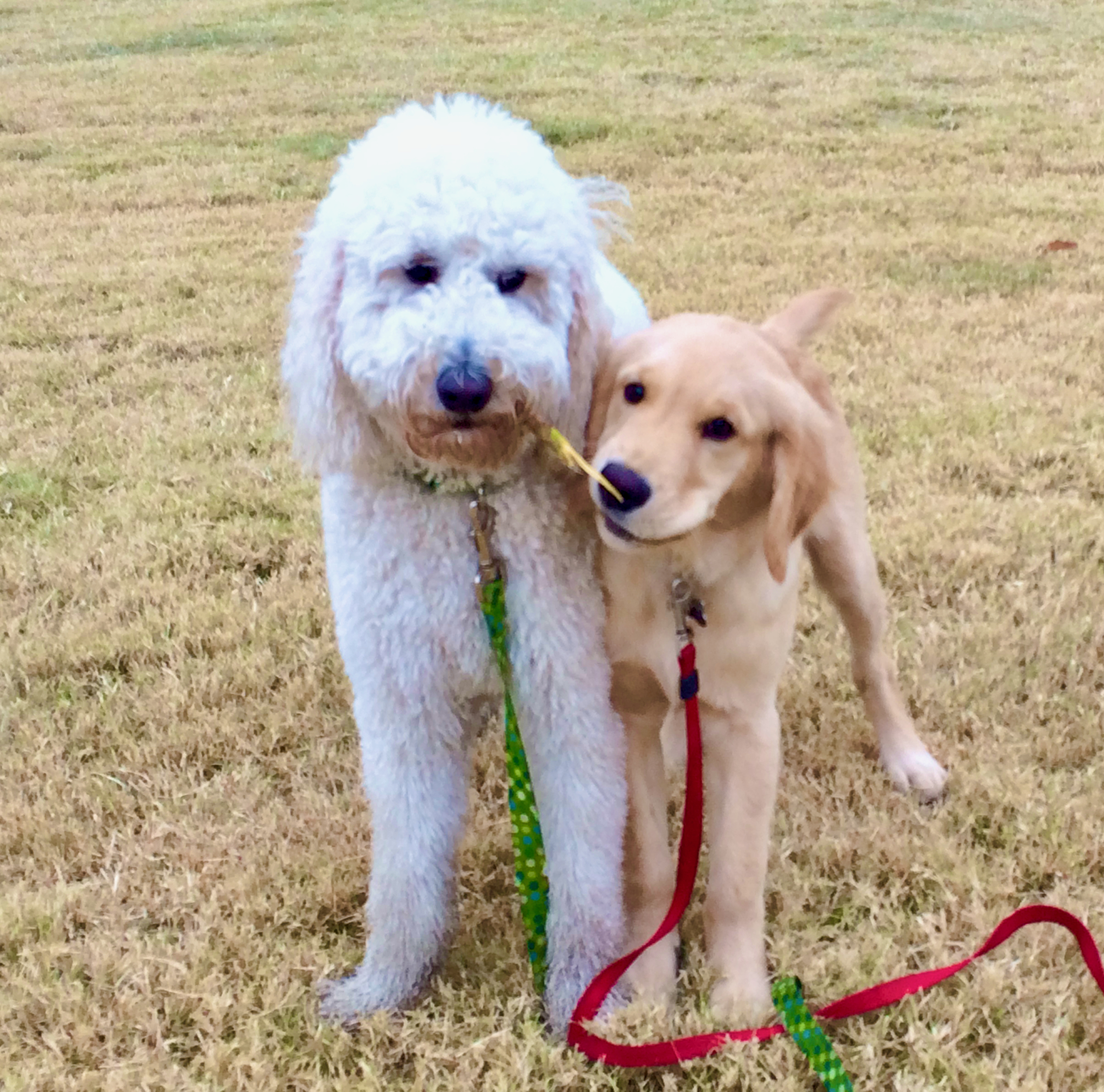

They smile (yes, dogs can smile, I see it every day) and present themselves to strangers in a very open way with the expectation of a positive friendly response from either species. And that is what they almost always get in return. I have seldom experienced a desirable outcome, either personally or professionally, resulting from a negative attitude or expectation. How do you respond when someone approaches you with a smile on their face, as opposed to a frown or scowl?

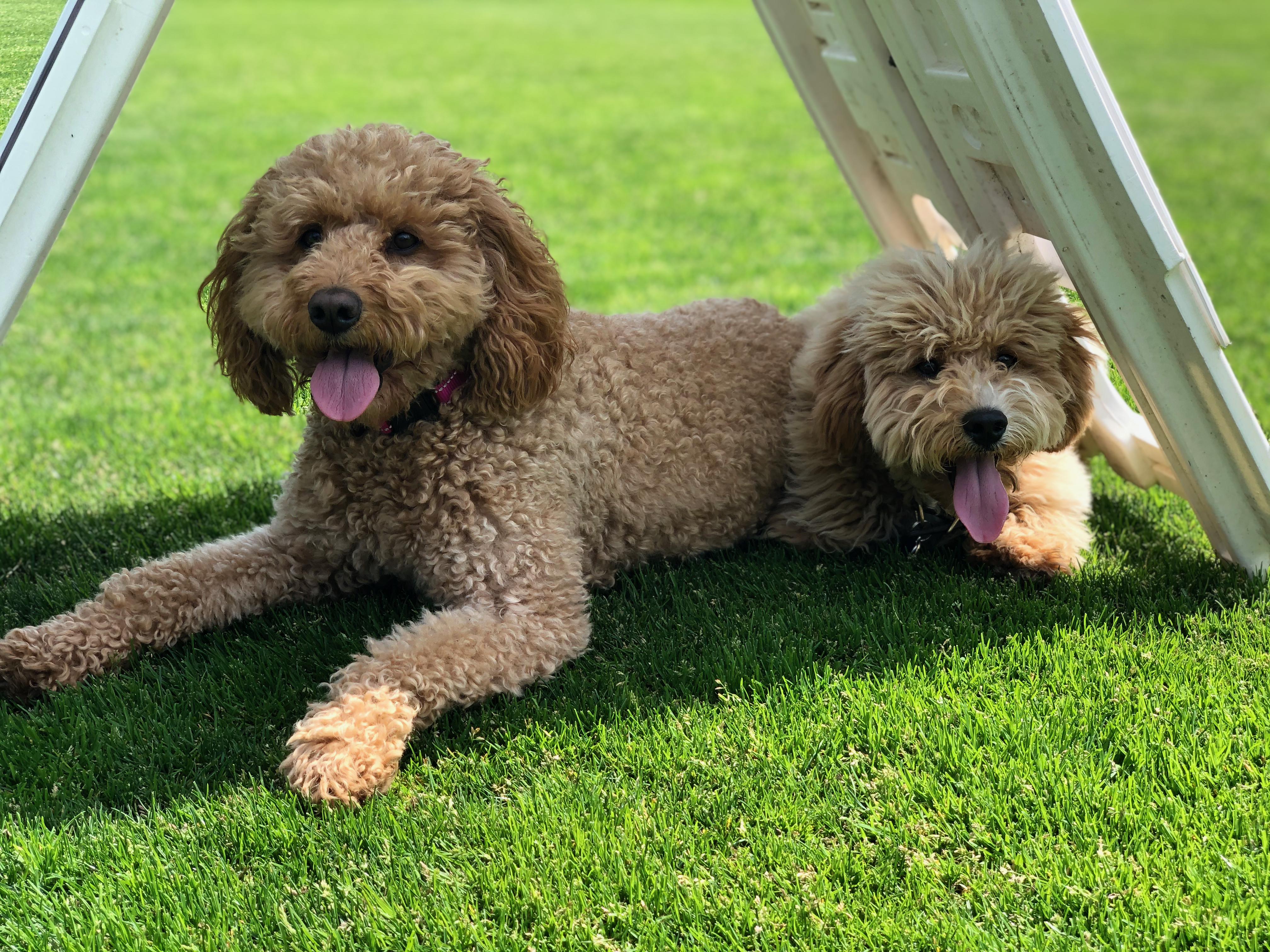

Lesson #4 – Be resilient. Both of these dogs have experienced upsetting events, mostly in the form of moving to a new home (as disruptive as moving can be for us, it is especially stressful for our dogs). Misha is a good bit older than Gabby and has suffered two physical injuries in her life so far, neither of them especially serious but they both involved several months of reduced physical activity while she was healing. In virtually every instance, both of these dogs have bounced back from temporary setbacks and resumed their usual friendly, positive, and cheerful approach to life. For most of us, negative stuff is sometimes going to happen no matter how positive an attitude we possess. It’s inevitable.
Try to not let it get you down too much or for too long when something doesn’t go your way. Bounce back. Every “no” gets you one step closer to a “yes”. In the environment of innovation (especially evident in the realm of technology), failure is accepted as a matter of course and is almost encouraged. Trying something new that doesn’t work provides a learning experience and moves you one step closer to finally finding something that does work. I no longer define myself by my setbacks and failures, I accept them as part of the journey and learning process. Misha and Gabby have taught me well.

Lesson #5 – Networking matters. Very few of us function well in a vacuum or in isolation. I think many of us have seen this recently during the forced social and physical isolation experienced as a result of the response to the Covid 19 pandemic. We, and our dogs, are social creatures. Both Gabby and Misha can exhibit signs of depression when forced to be indoors and alone due to any number of temporary circumstance
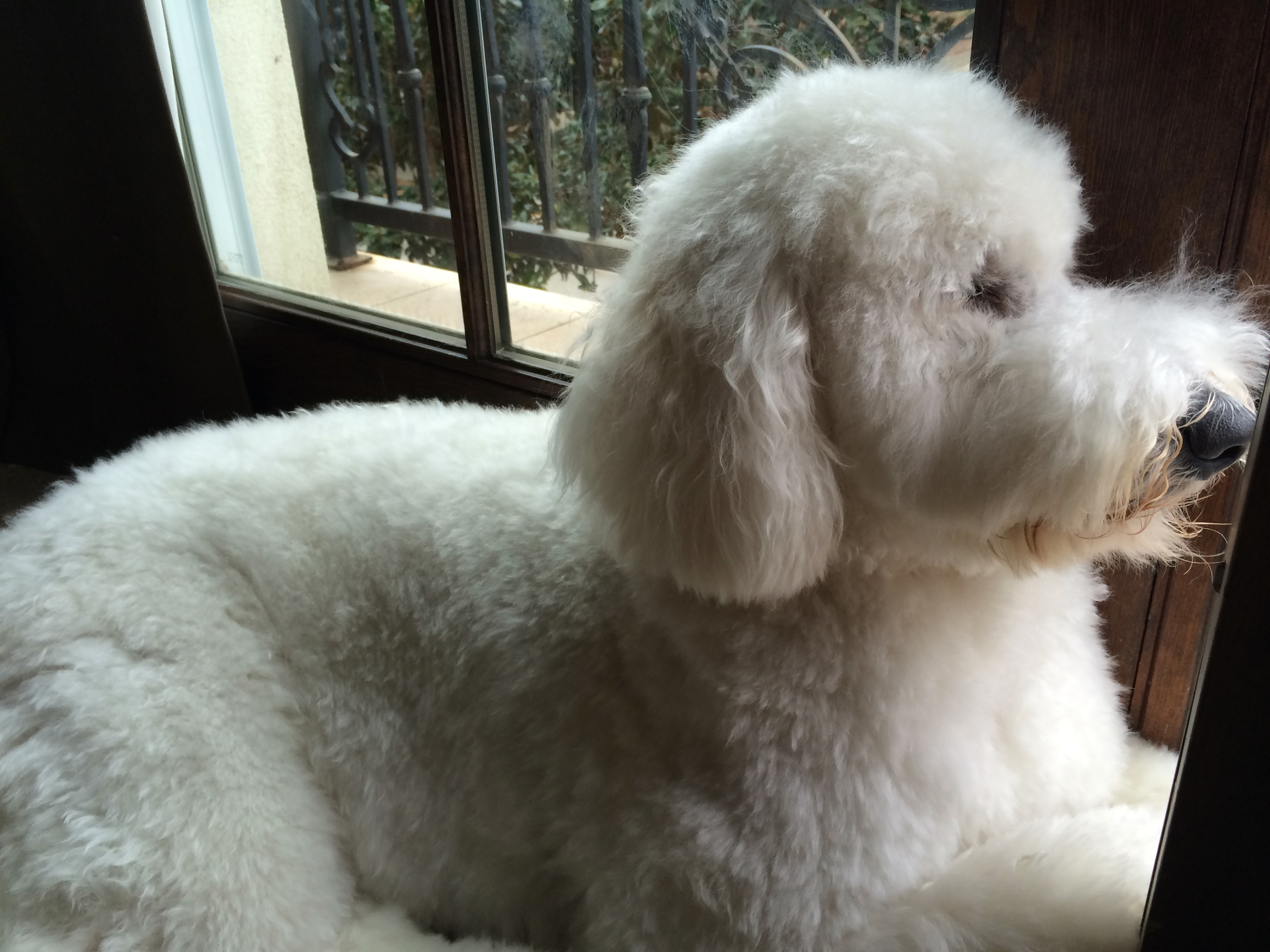

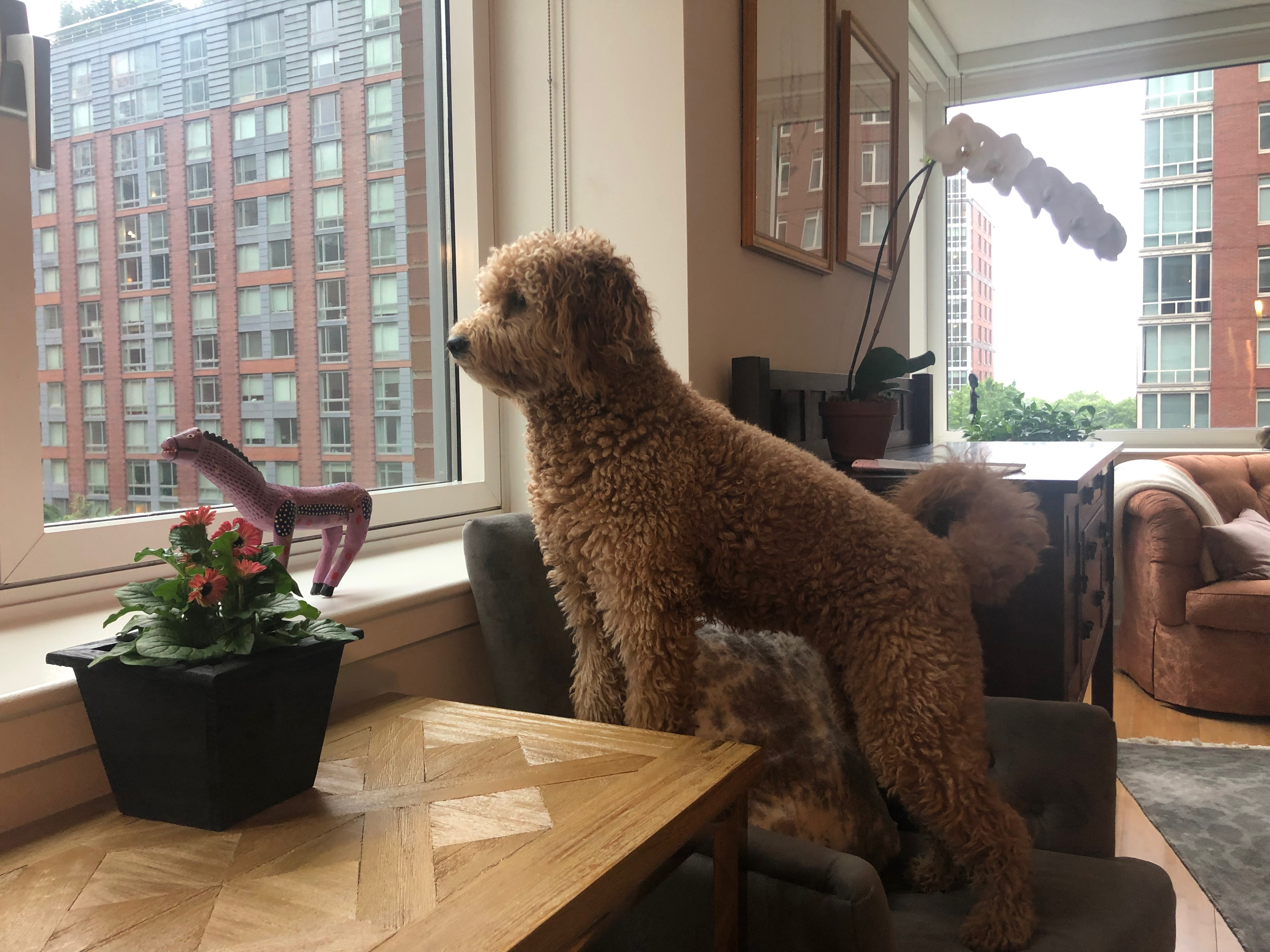
As someone with wander lust, I have spent my life traveling throughout the world and moving to new and exciting cities. When you travel for work, it is easy to connect into the local community whether it is Shanghai, Singapore, Sydney, Munich, Paris, London, Mexico City or Toronto.
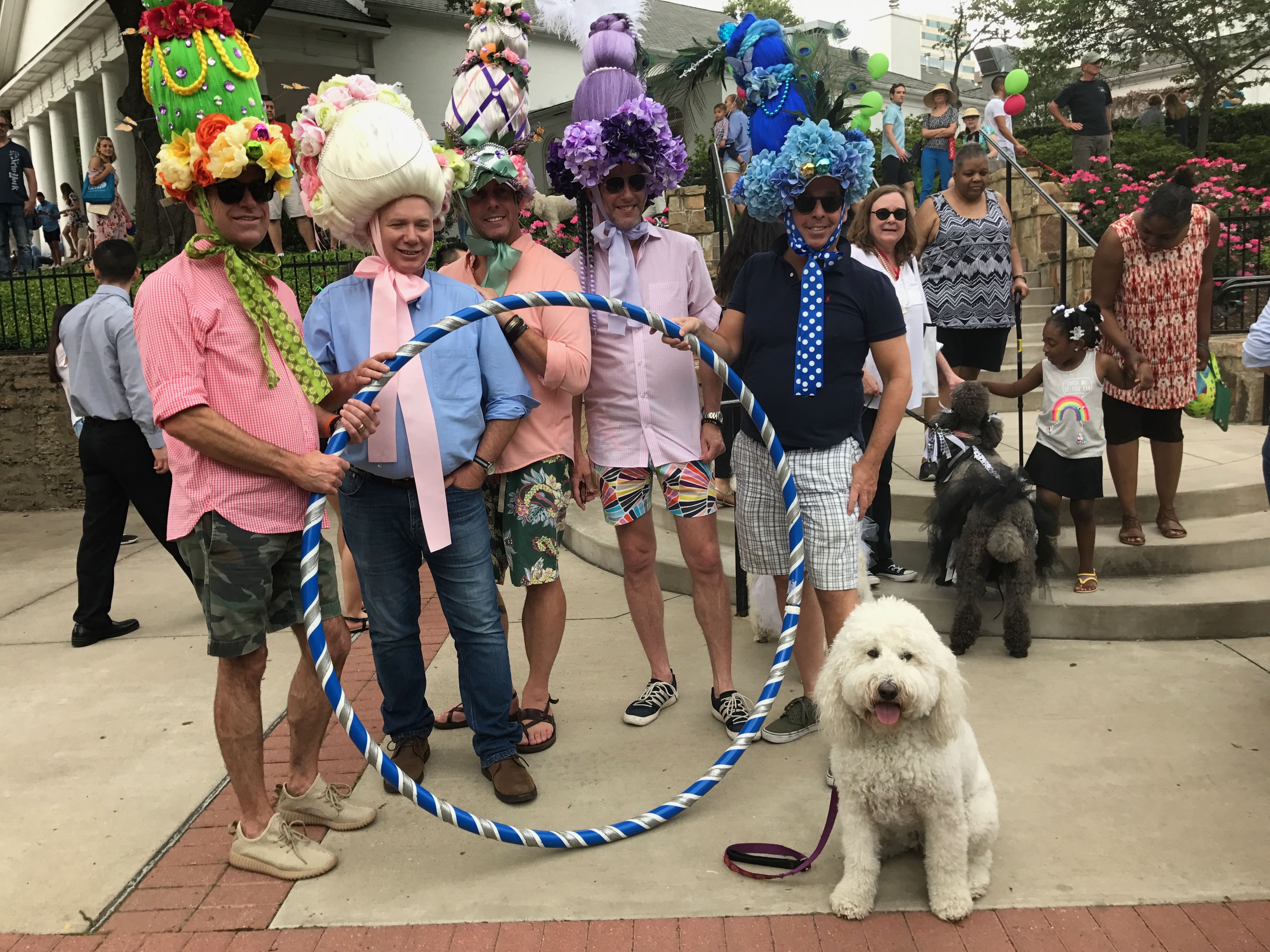
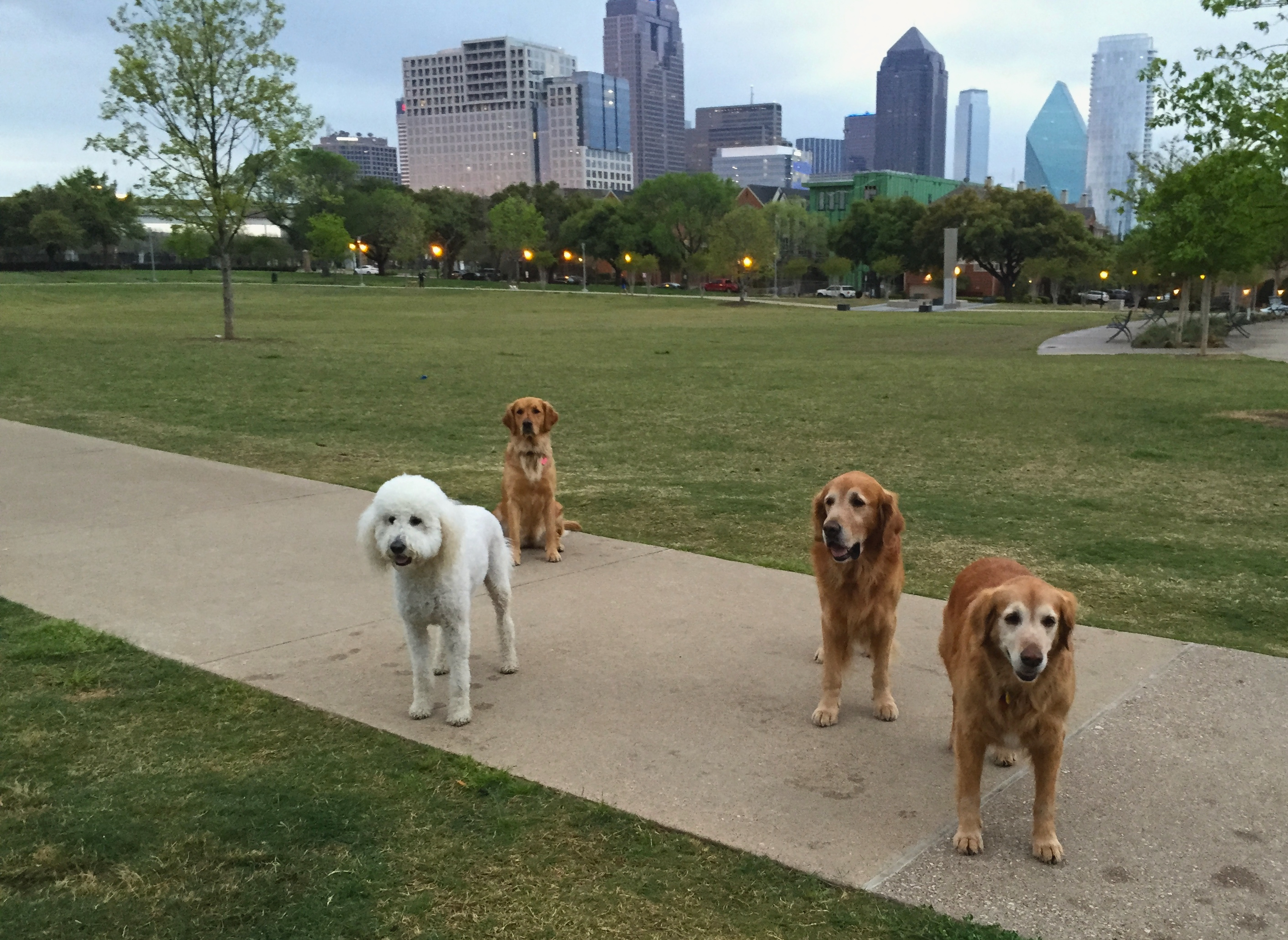
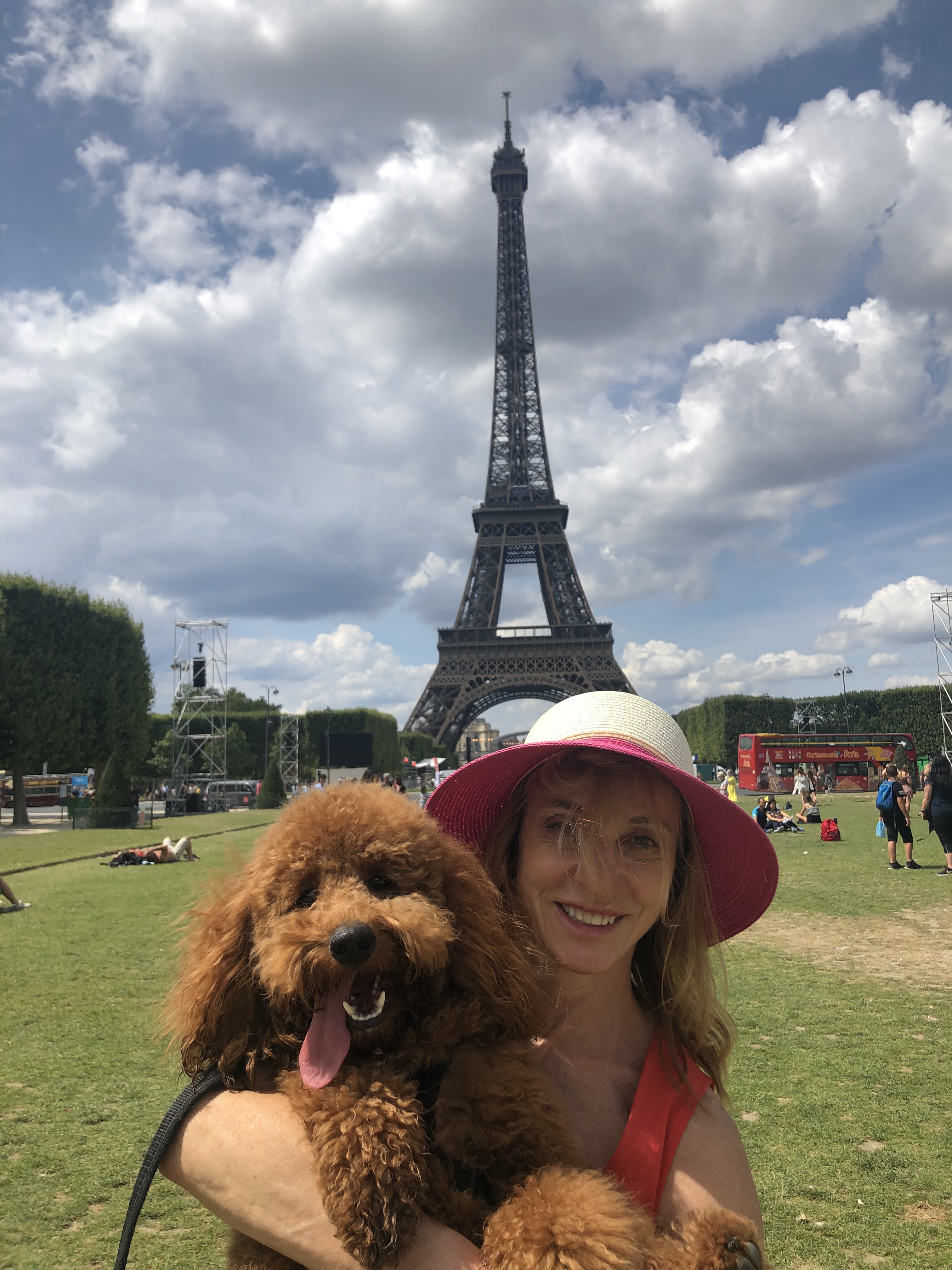
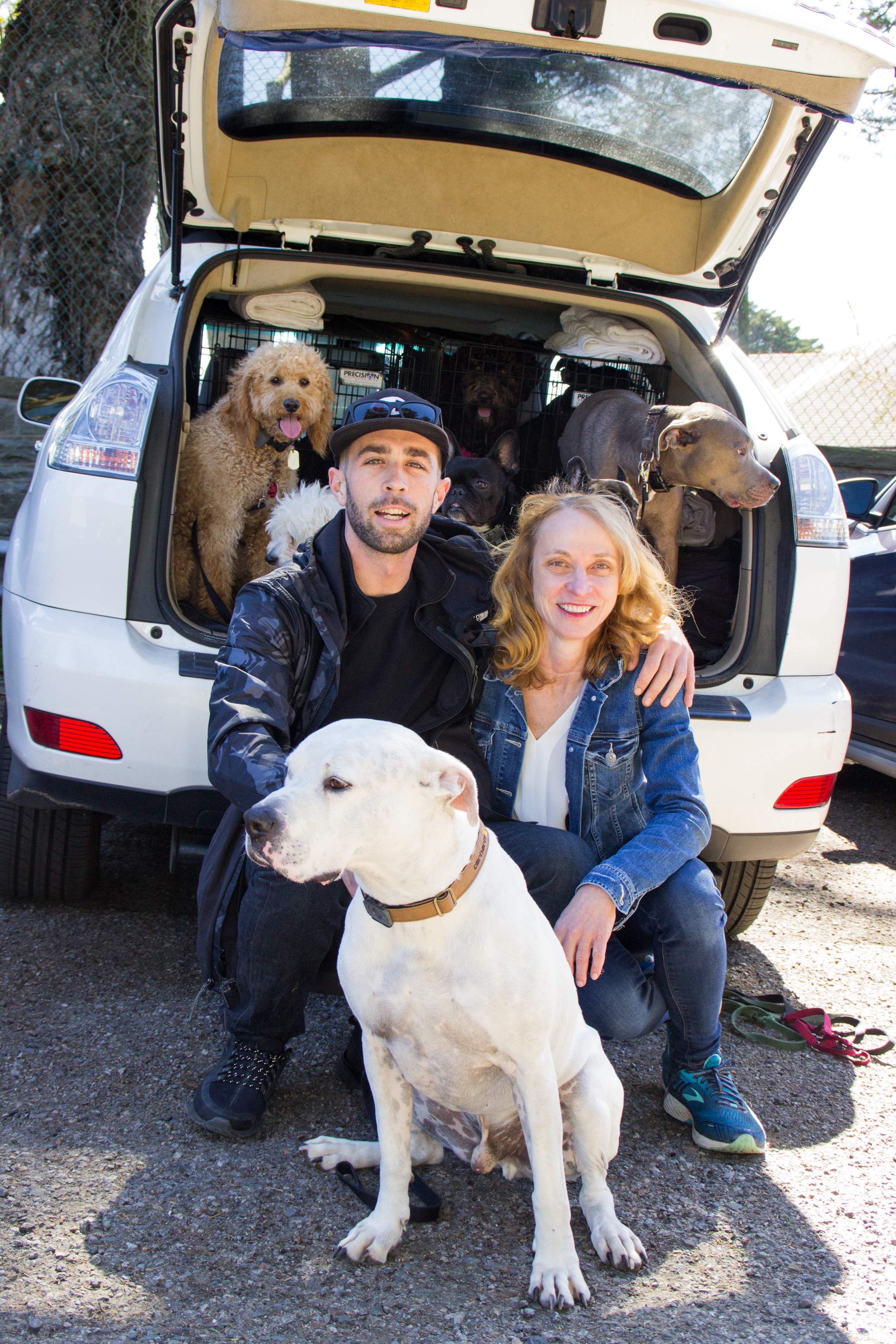
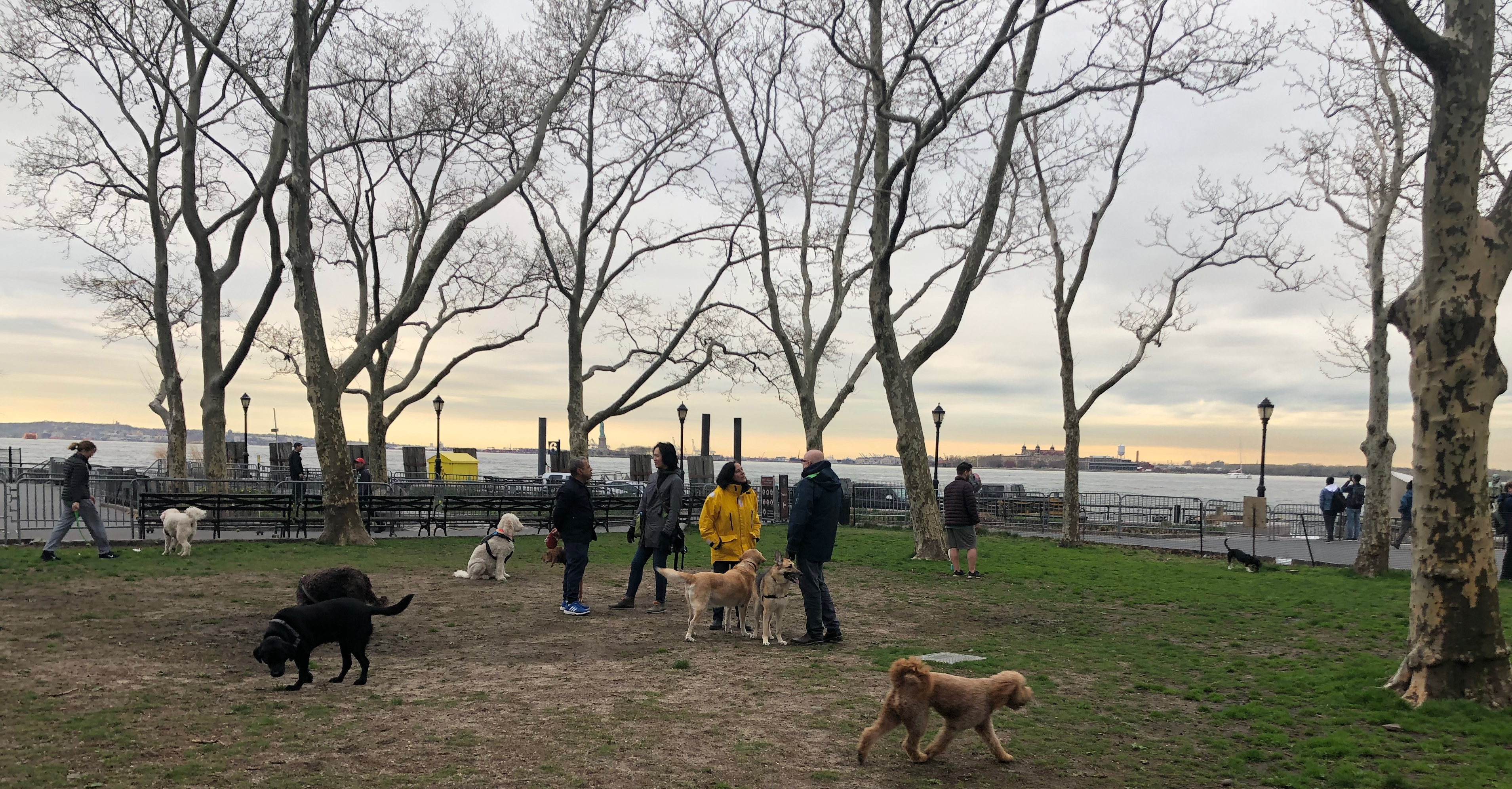


You simply plan dinner and ask locals to join you to their favorite restaurants. But when you move to a new city, creating connections and building a new life is not so simple. People have their own lives, and while you may go out with friends from work every now and then, building personal connections gets harder. It does happen, but it can be a slow and arduous process. This all changes when you have a dog! When you live with dogs, you are forced to go for walks and find parks, open parks where other dogs are free to play, run, sniff and wrestle.
While they play, I have met some amazing people, other dog owners with whom I would not have otherwise become acquainted, very highly accomplished individuals in their respective industries and professions. Some very cherished and productive friendships have resulted for me from meeting other dog owners via doggy play dates and becoming part of a local canine network.

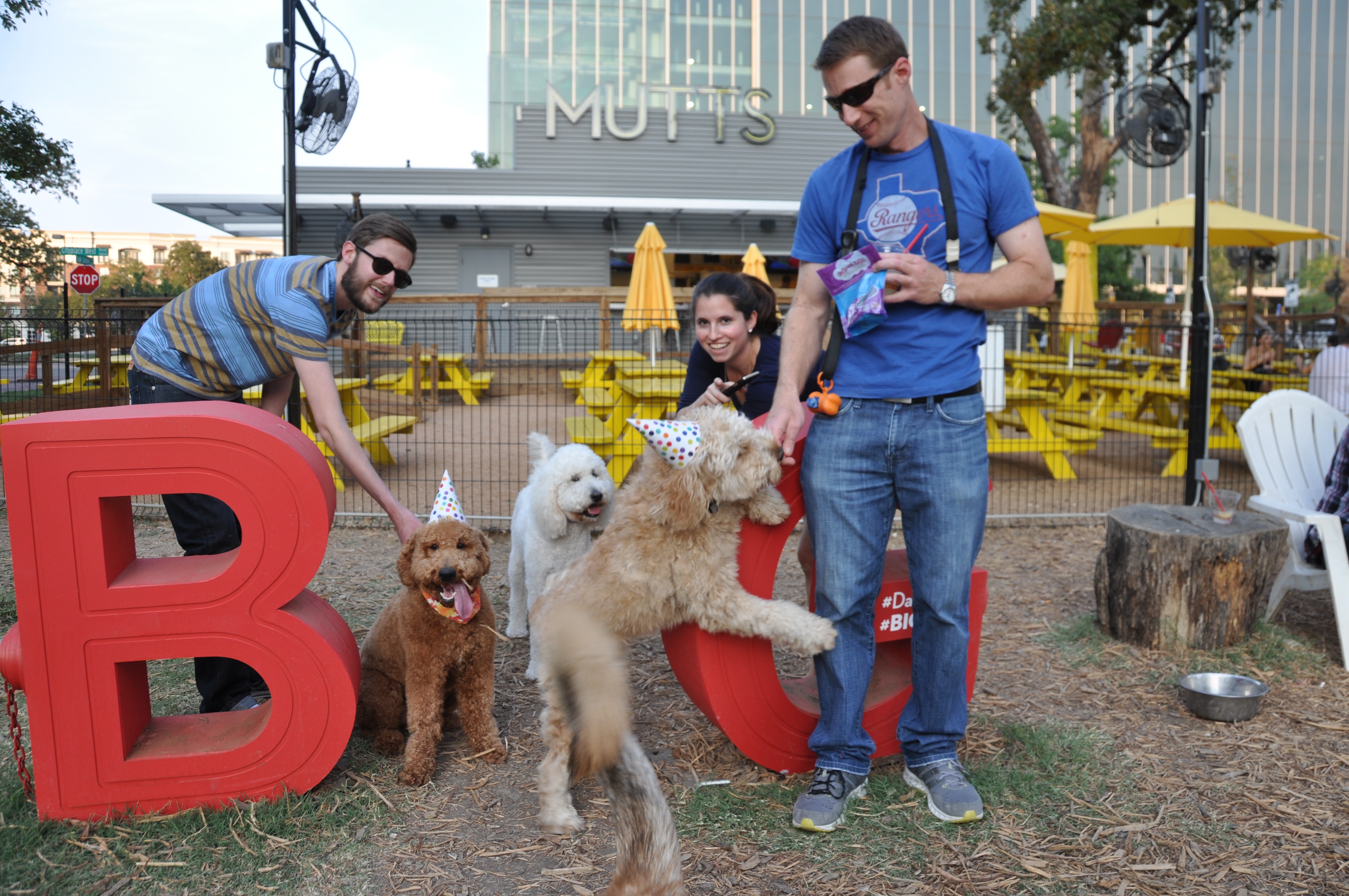

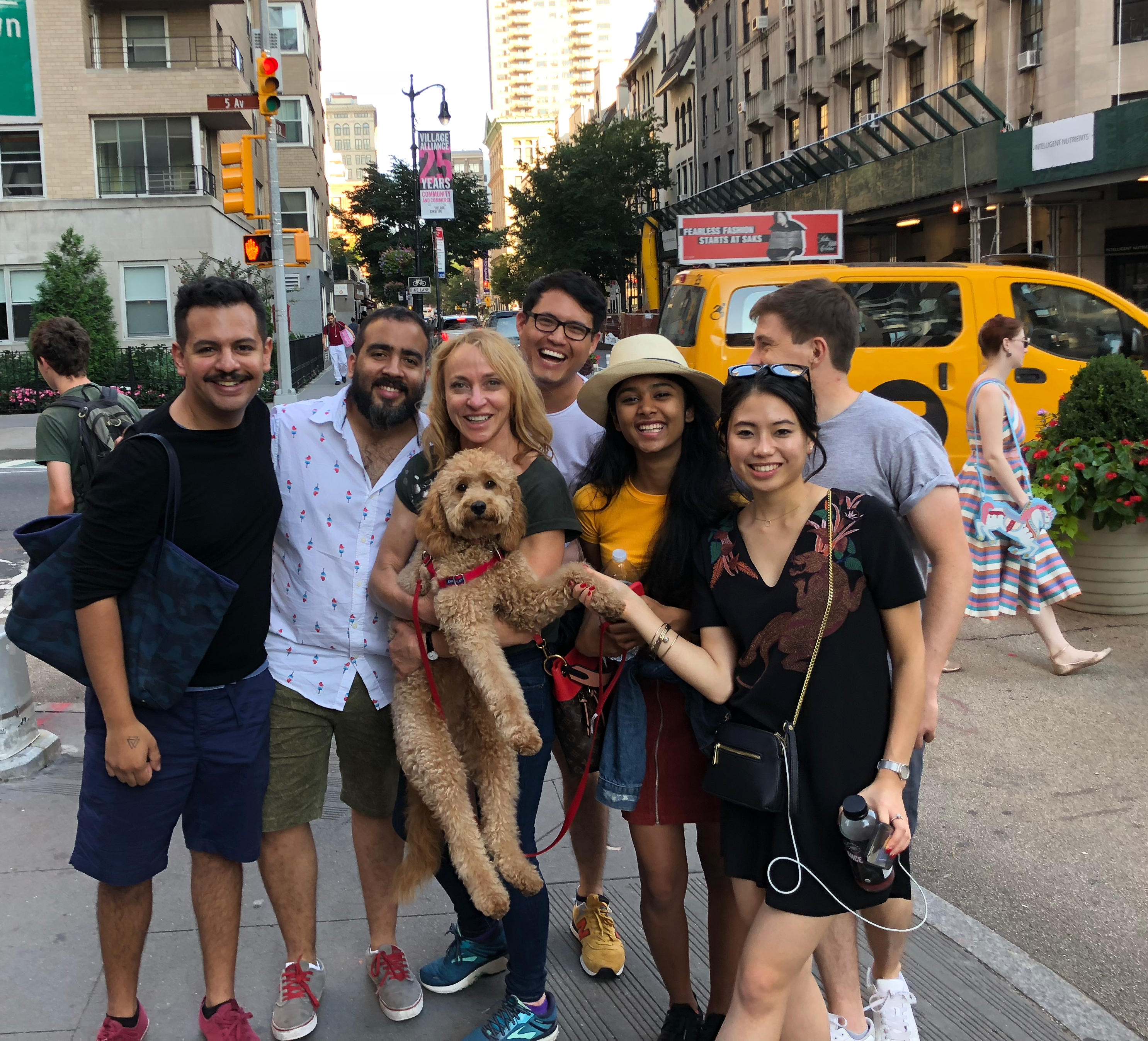

Lesson #6 – Business Development. In the world of business and business development, it is vitally important to know your market and your niche in that market, be able to identify opportunities, and be prepared to take swift and decisive action (i.e. be prepared to “go to market”) when those opportunities present themselves. I learned this mostly from Misha. When we’re in the park, Misha is always on the look out for squirrels.


Squirrels are her market, she doesn’t care about, and is not distracted by, birds or ducks. When she spots a squirrel, her instincts take over and she goes into her hunting mode. She becomes very still and quiet and begins to slowly and silently make her approach until she feels the moment is right, at which time she will make an explosive move and go into a sprint to chase the squirrel down. If the squirrel is too far away or too close to a tree it can use as an escape, she doesn’t bother wasting her energy on a pursuit not likely to have a positive outcome for her.
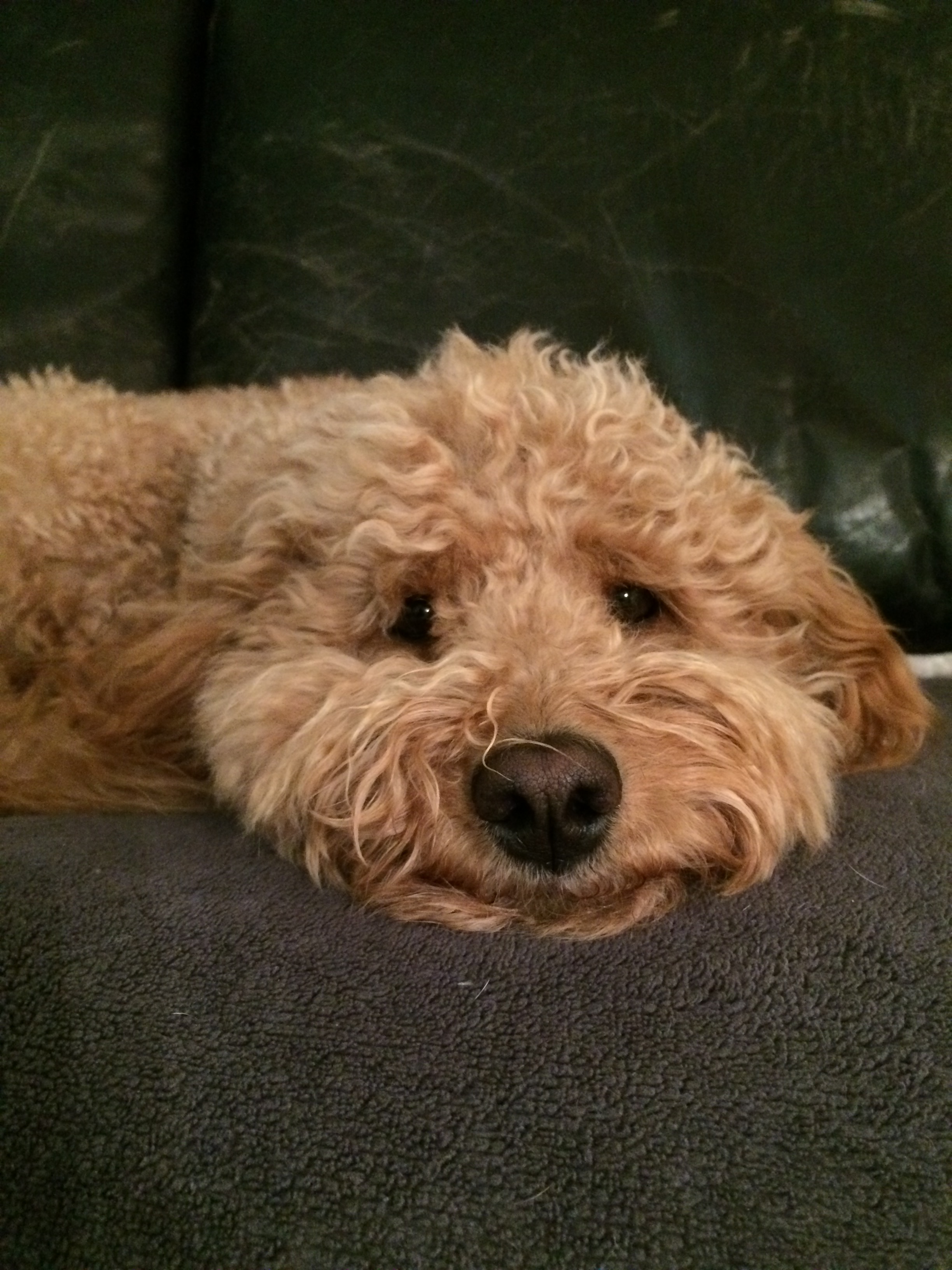


In other words, she knows her market (squirrels), she awaits what she perceives to be favorable opportunities, and she pounces when those opportunities present themselves. By the way, in her seven and a half years of life, she has never caught one (I hope she never does), but that doesn’t stop her from trying.

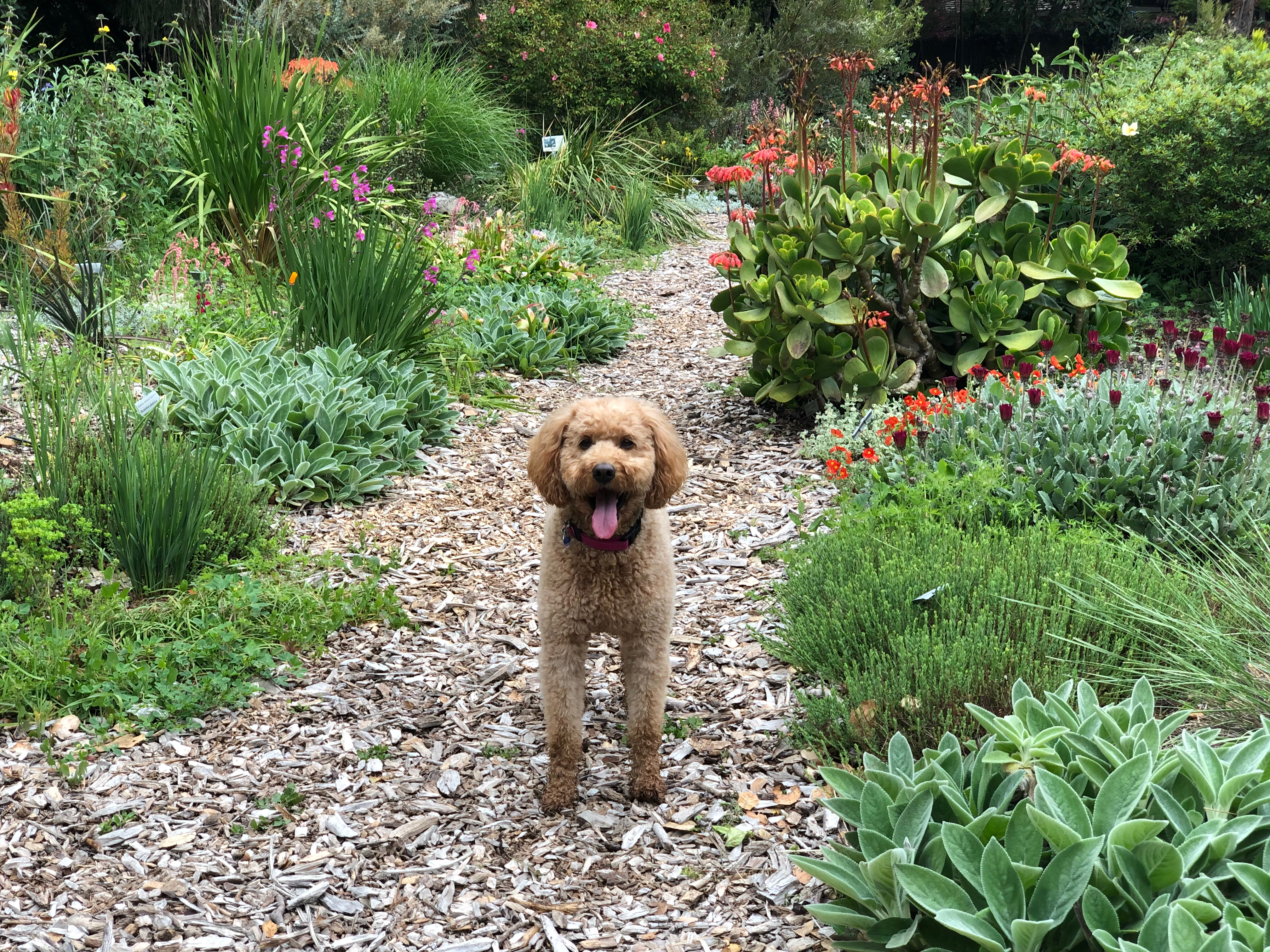
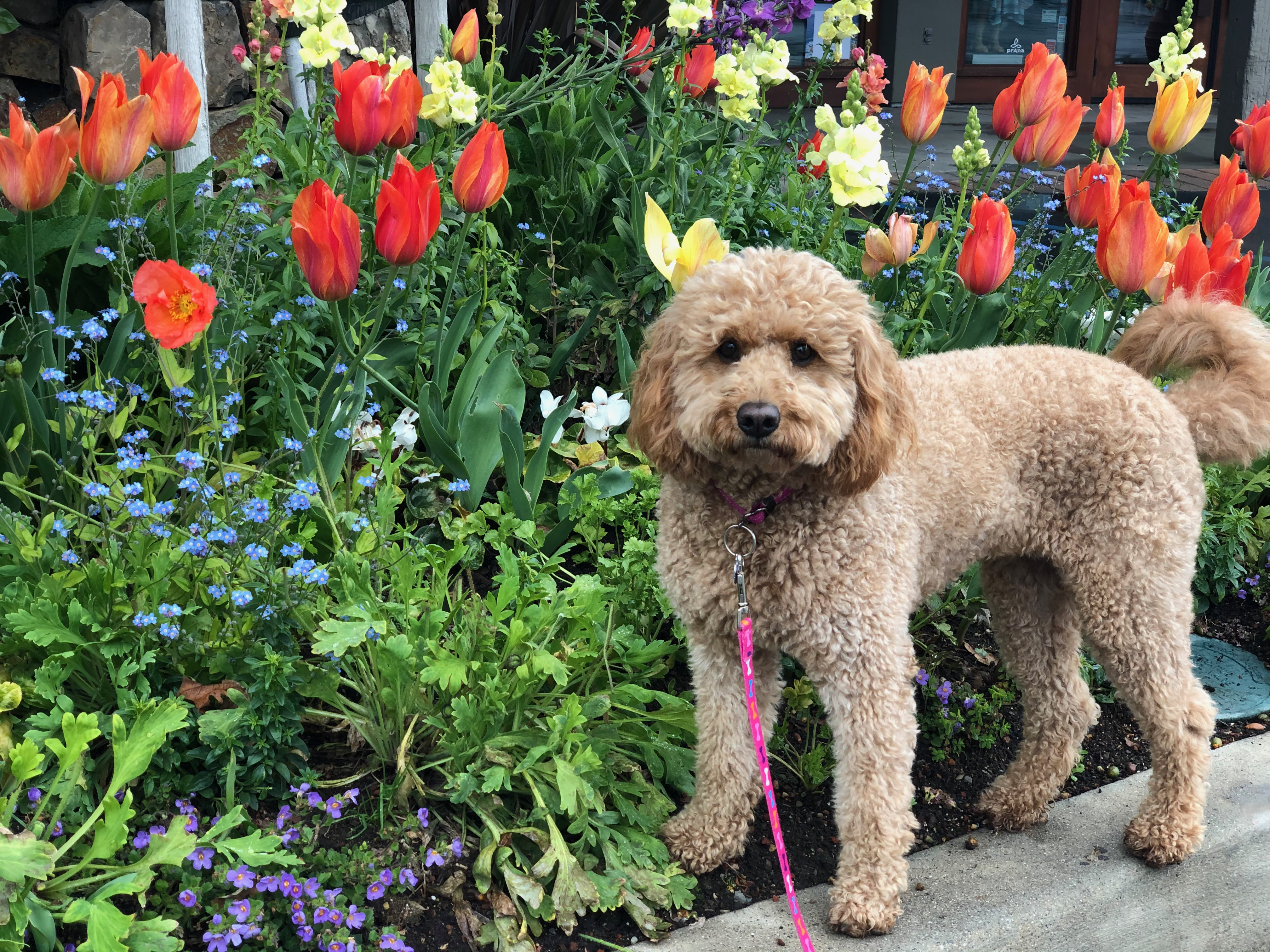
Lesson #7 Stop and smell the roses. Or, if there aren’t any rose bushes available, sniffing the grass and hedges will suffice. Most of us have very busy lives and schedules which don’t allow time for much reflection or introspection. Living with dogs means you’re going to have to go for a walk with them on a regular basis. You are forced to take a “time out”, so to speak.




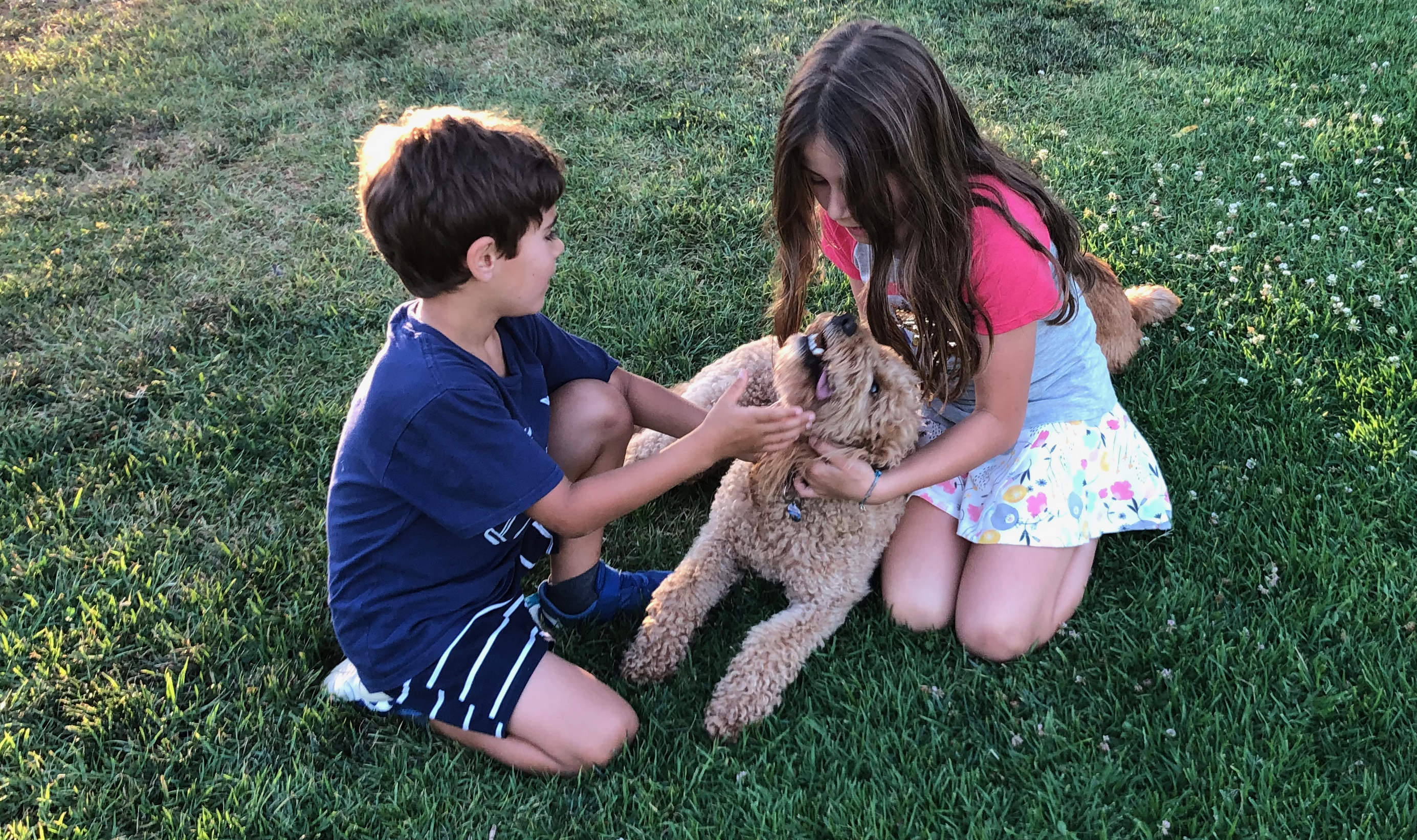



This can be a very quiet time during which I can reflect and look at the world around us from a different perspective. I can observe and experience nature in a different way than looking outside through an office window. I’ve learned a lot during these quiet times while walking the dogs. Mostly, I’ve learned the benefits of slowing down a bit and taking the time to assess and appreciate my journey with my canine companions alongside me. I look forward to these walks now as much as they do. I know I am a different and better person as a result of taking these times out, enhancing my relationships with the people and world around me.
Lesson #8 – Welcome diversity. Good things can come in many different kinds of packages of all shapes, sizes, and colors. As mentioned above, both Misha and Gabby are very highly socialized with humans and dogs. They approach everyone of both species in a very positive, happy, and playful manner. When responded to in kind, they seem to care not at all about your shape, size, gender, color, or how many legs you have. A smile, a treat, a friendly scratch or belly rub, a game of fetch or tug-of-war, and they’ve made a new friend. Be open to the concept that appearances aren’t everything and that people with very different and diverse personal and professional histories can offer very useful and unique perspectives in a wide variety of circumstances. Pay attention to what others do, not so much how they look or where they come from, and respond accordingly. You too will find the world a wonderful a special place.

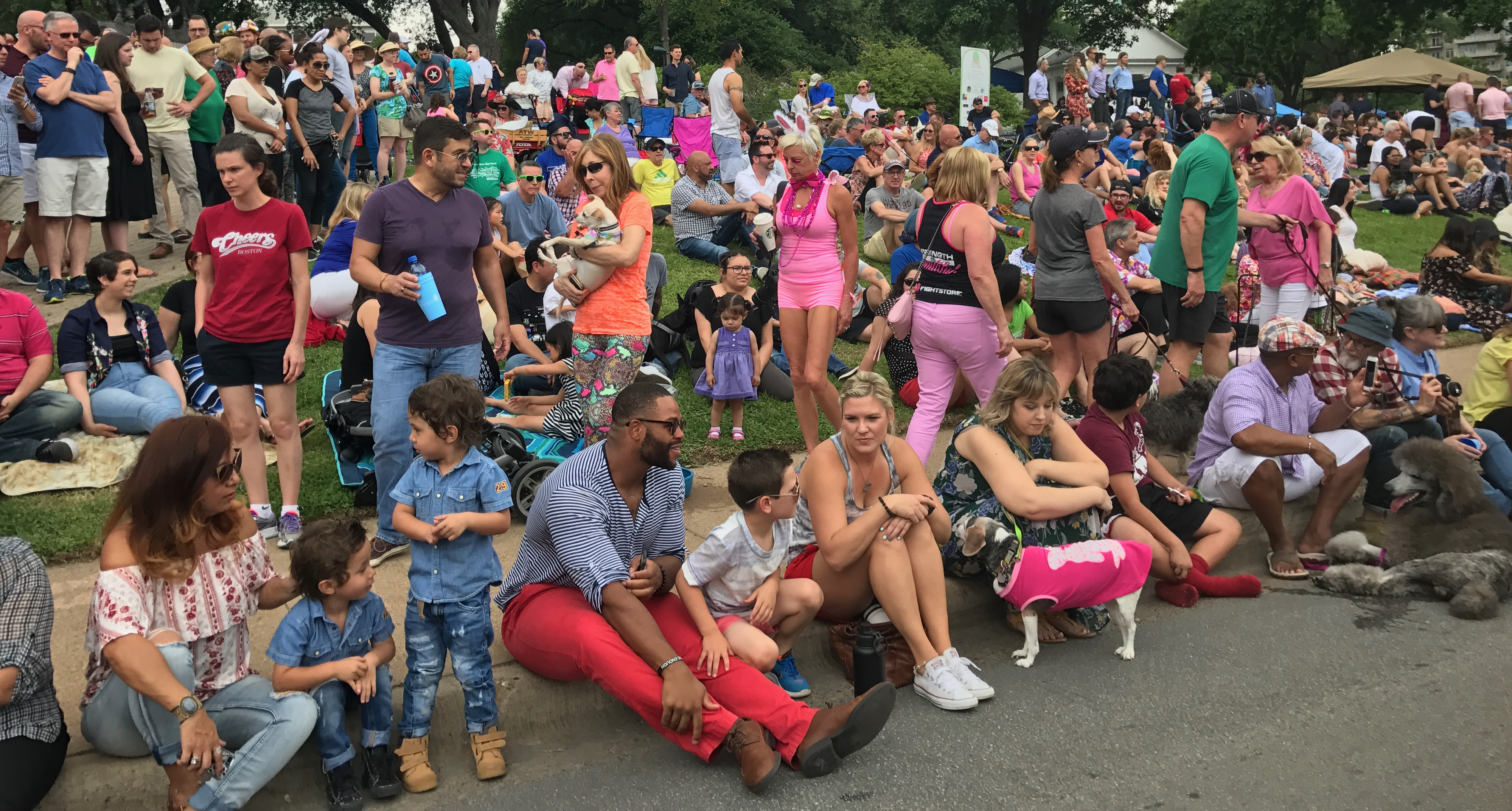

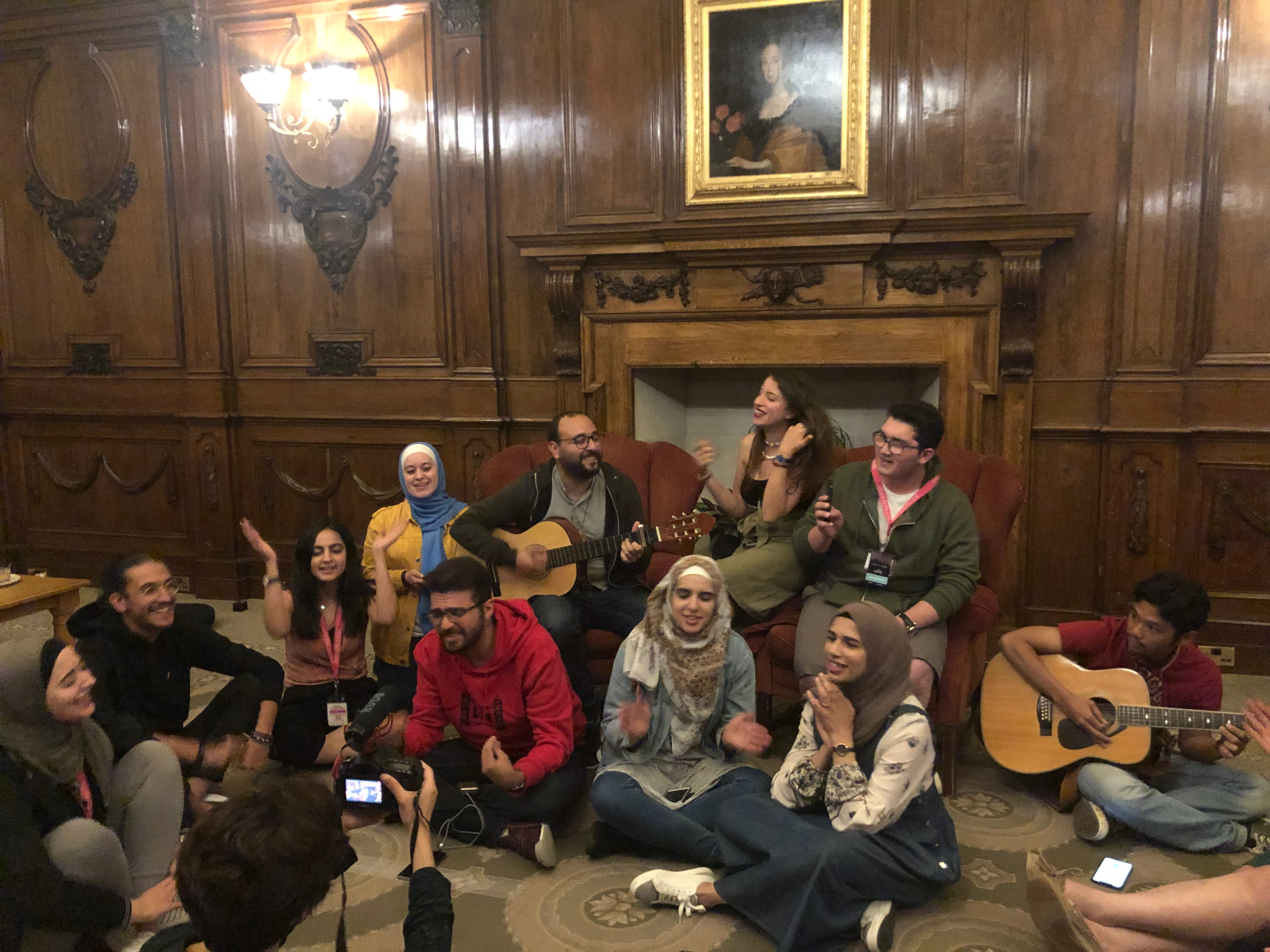


I cannot thank Misha and Gabby enough. They have changed my world, my self perception, and the very core of my being. They have imparted wisdom to me and have been a source of overwhelming joy that I sometimes don’t feel I deserve. I love them unconditionally in a very emotional and powerful way that I once thought I was not capable of experiencing. They are special creatures and cherished companions and deserving of every treat I can provide.






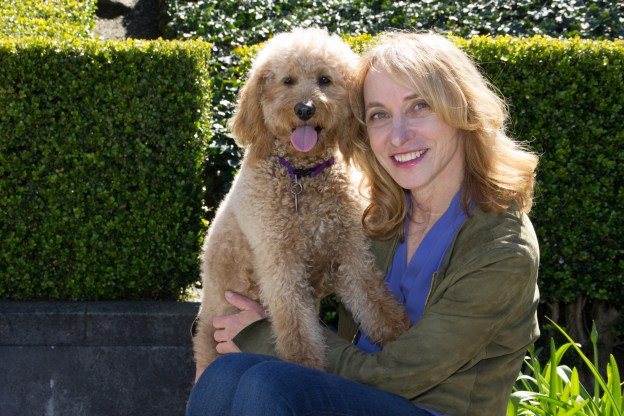
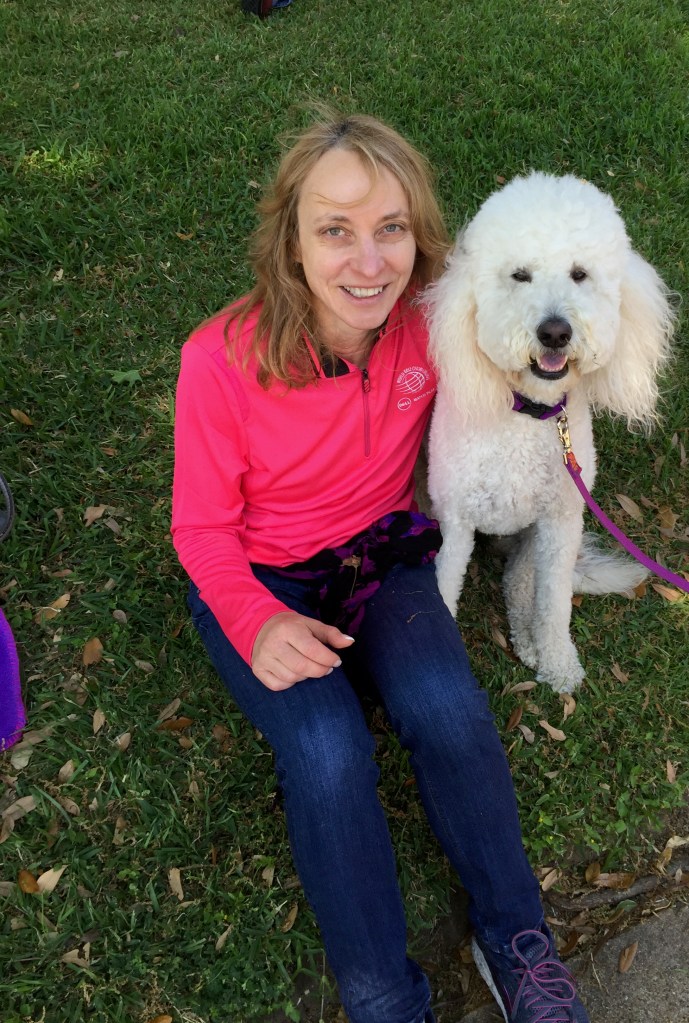
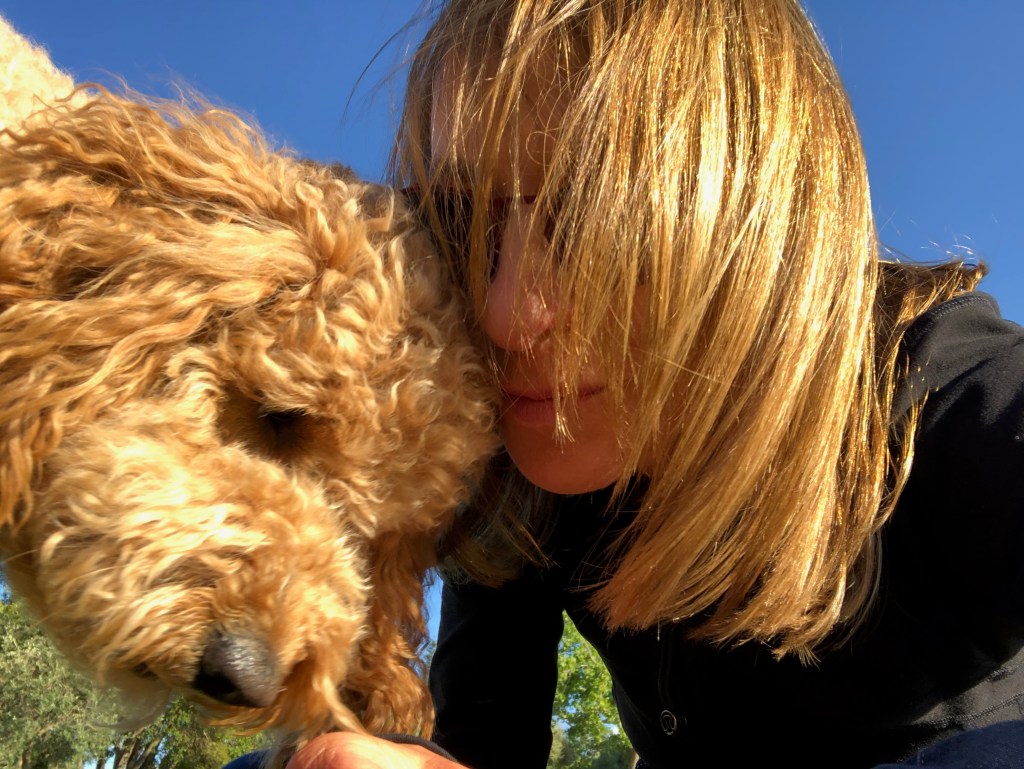
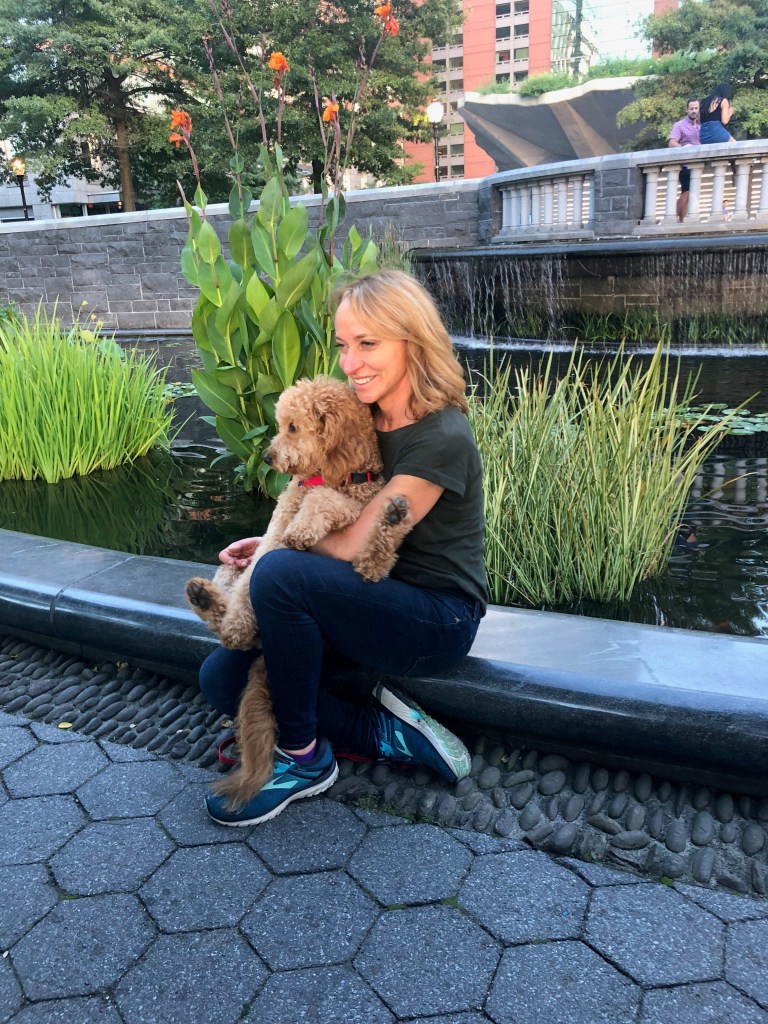






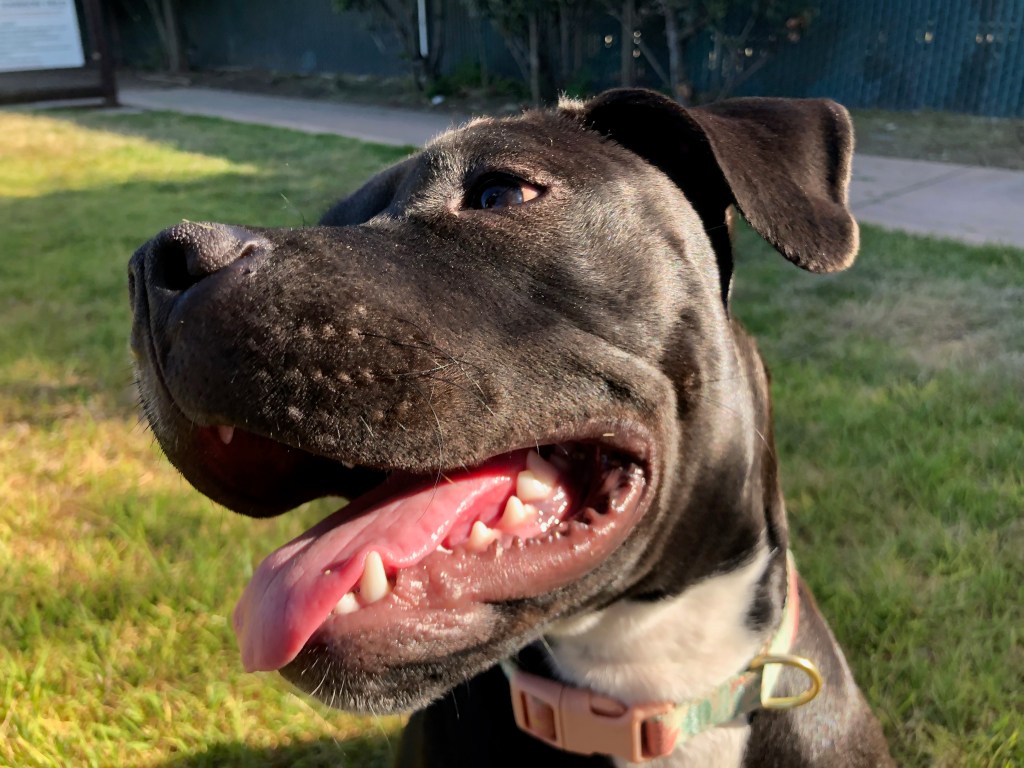
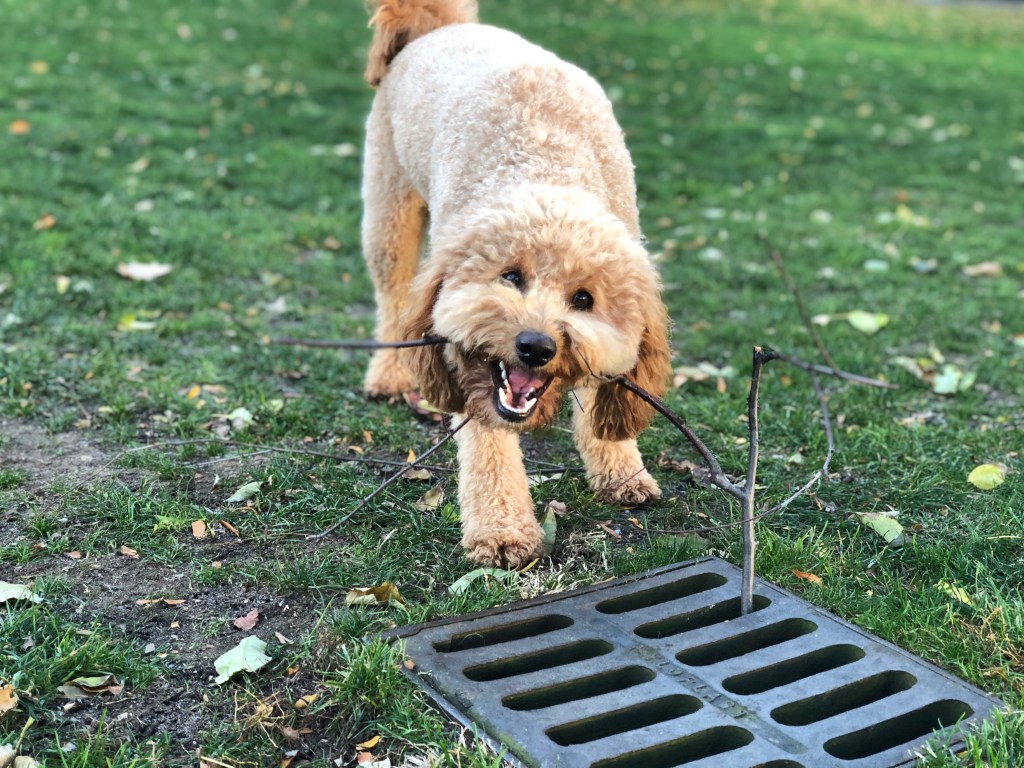



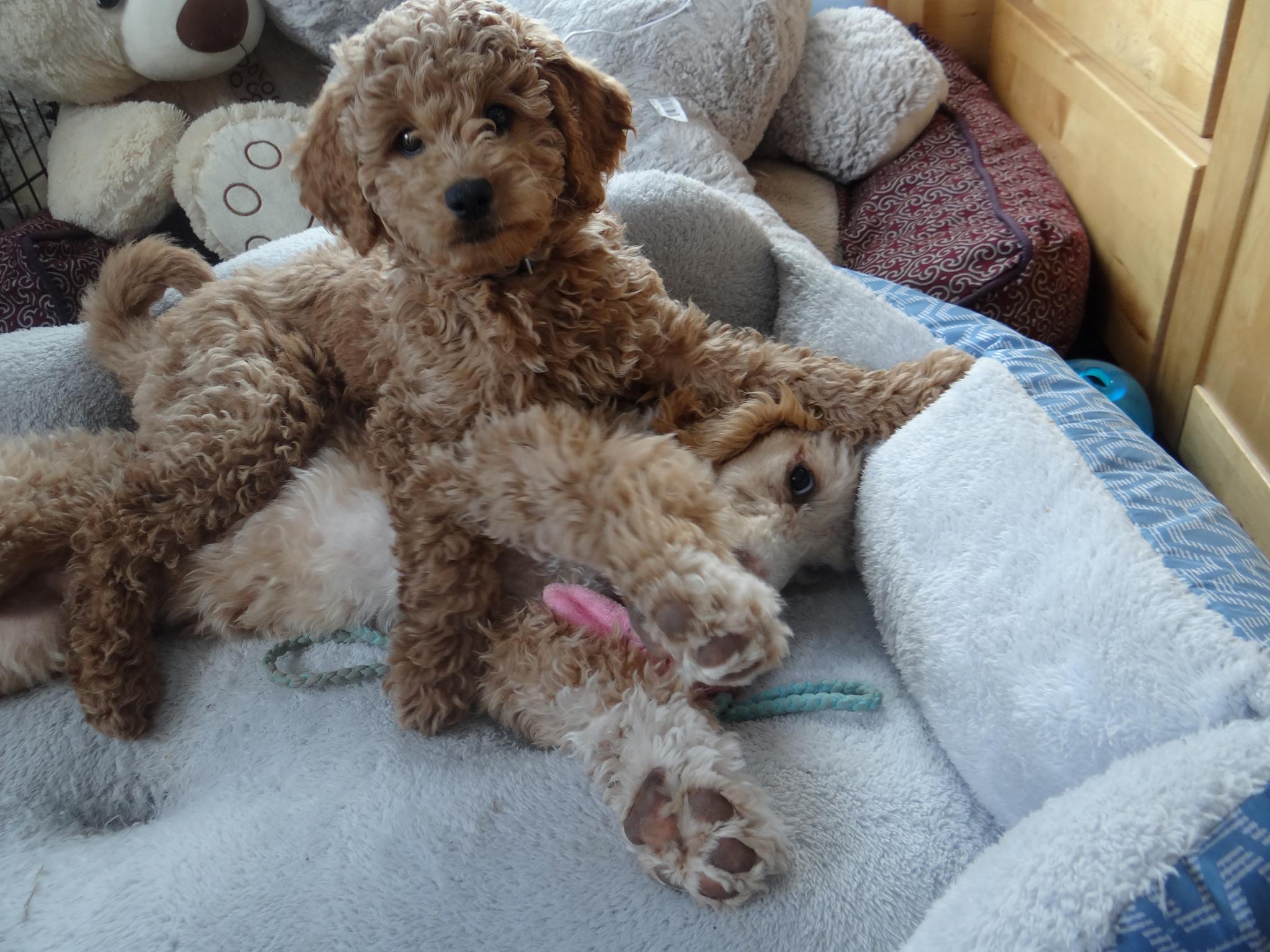


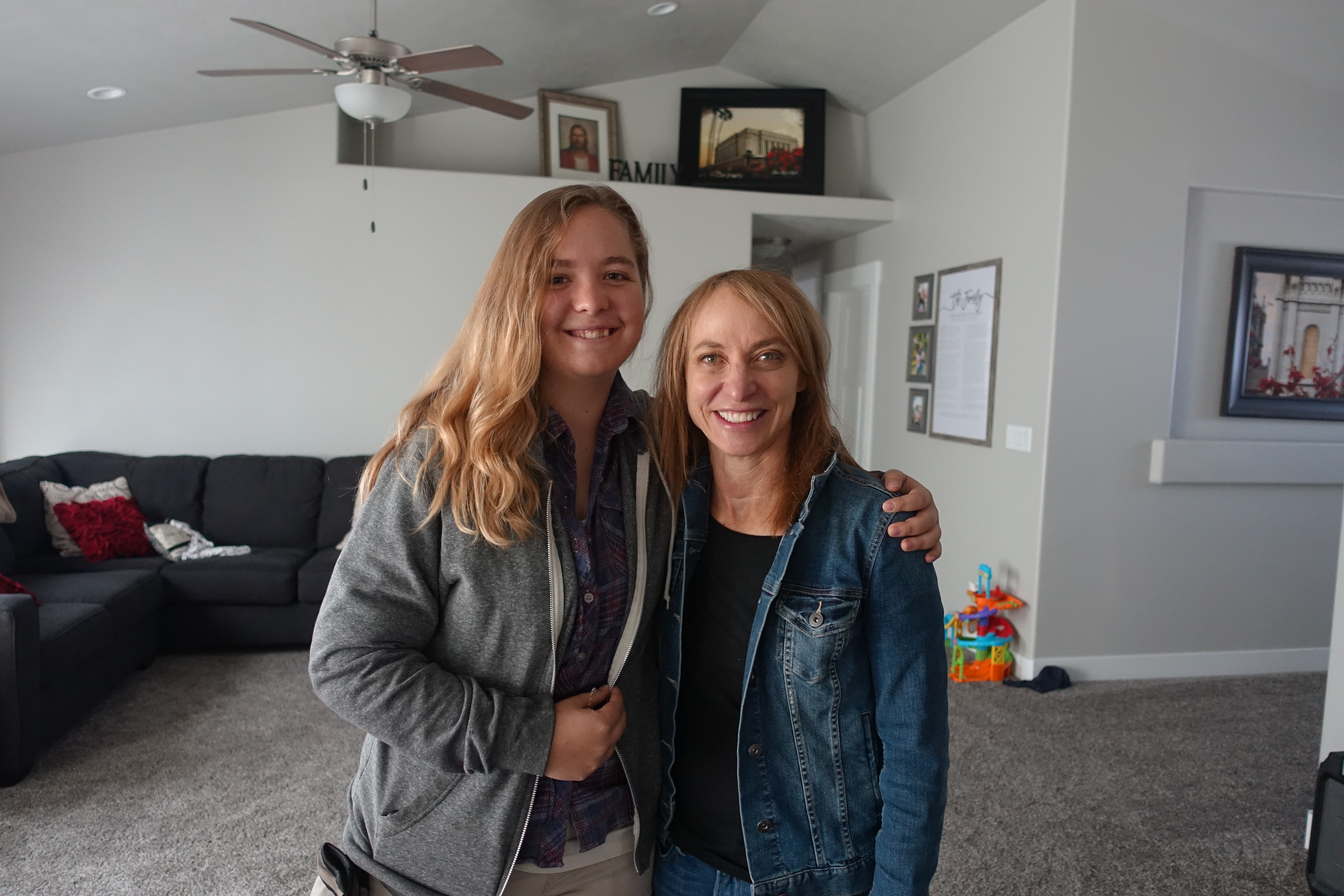

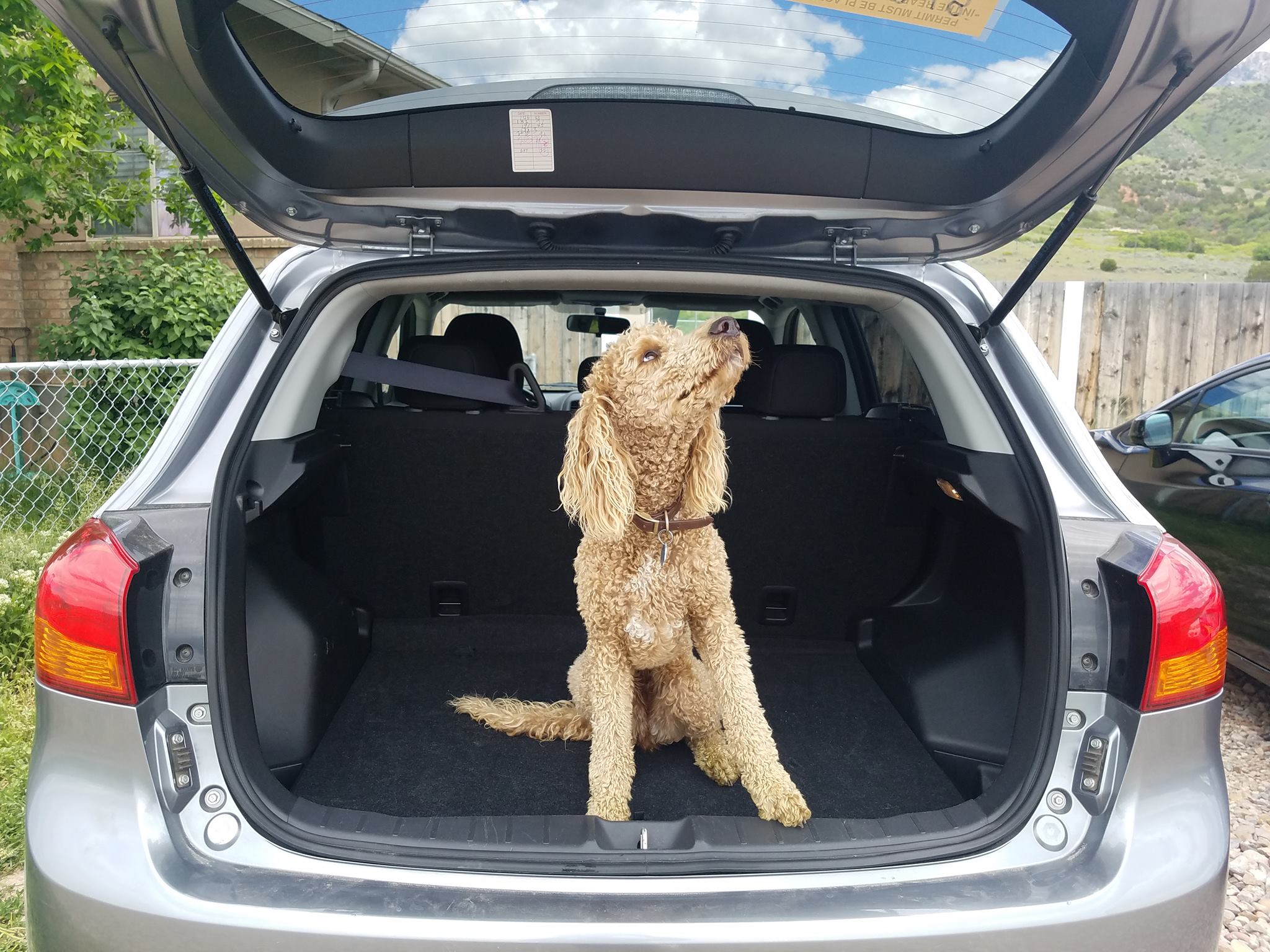

































 I was in Mexico City for 1 of 15 Hult Prize regional finals. Inspired by the culture in Mexico, I not only attended the regional competition, but I participated as one of the 9 esteemed judges. As I sat in the judge’s room, Abe and his co-founder blew us away with his idea to Harness the Power of Energy to Transform lives. Their idea utilized a patented technology to pull water from the air and provide it as an essential resource to refugees.
I was in Mexico City for 1 of 15 Hult Prize regional finals. Inspired by the culture in Mexico, I not only attended the regional competition, but I participated as one of the 9 esteemed judges. As I sat in the judge’s room, Abe and his co-founder blew us away with his idea to Harness the Power of Energy to Transform lives. Their idea utilized a patented technology to pull water from the air and provide it as an essential resource to refugees.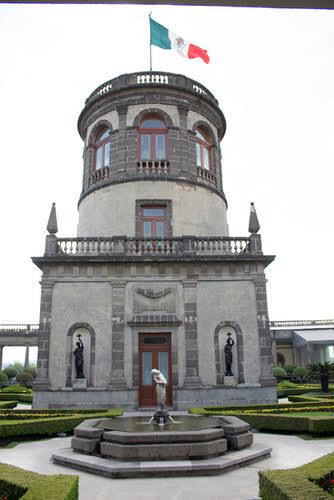
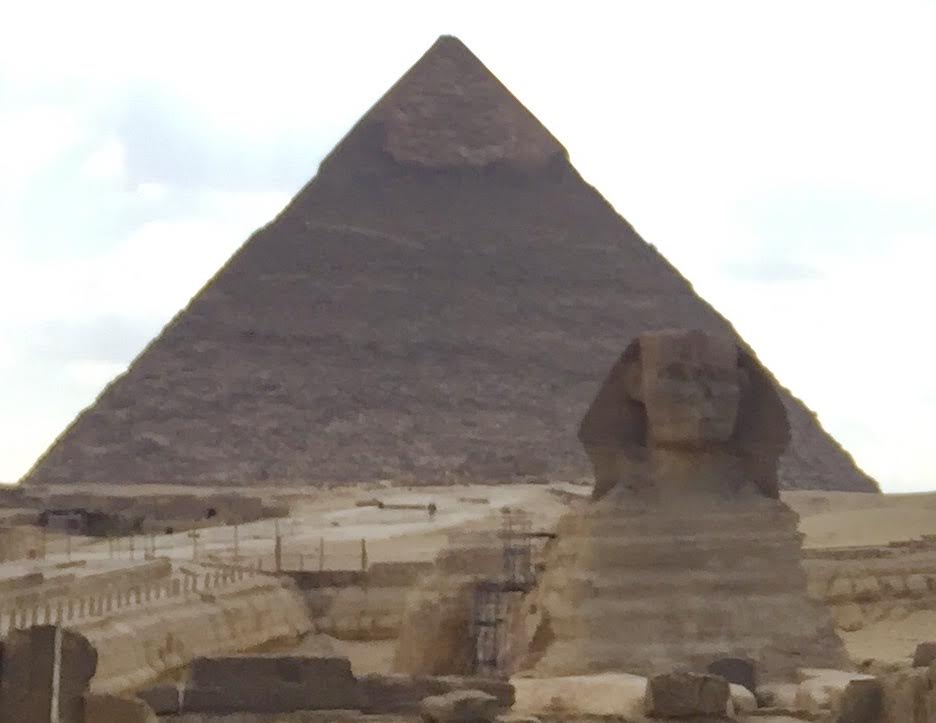



 For those who are reading this, life has many twists and turns. Losing can mean winning. And sometimes winning takes on an entirely new meaning. I now have a friend for life who inspires me, and Sam has a new journey, one that will be my joy and privilege to guide, and to share in his successes. This is only the beginning of a very long road together. How amazing is that?
For those who are reading this, life has many twists and turns. Losing can mean winning. And sometimes winning takes on an entirely new meaning. I now have a friend for life who inspires me, and Sam has a new journey, one that will be my joy and privilege to guide, and to share in his successes. This is only the beginning of a very long road together. How amazing is that? What happened in Mexico and what obstacles did you have to overcome?
What happened in Mexico and what obstacles did you have to overcome? After leaving Mexico, what did you do to prepare for the Egypt Nationals?
After leaving Mexico, what did you do to prepare for the Egypt Nationals?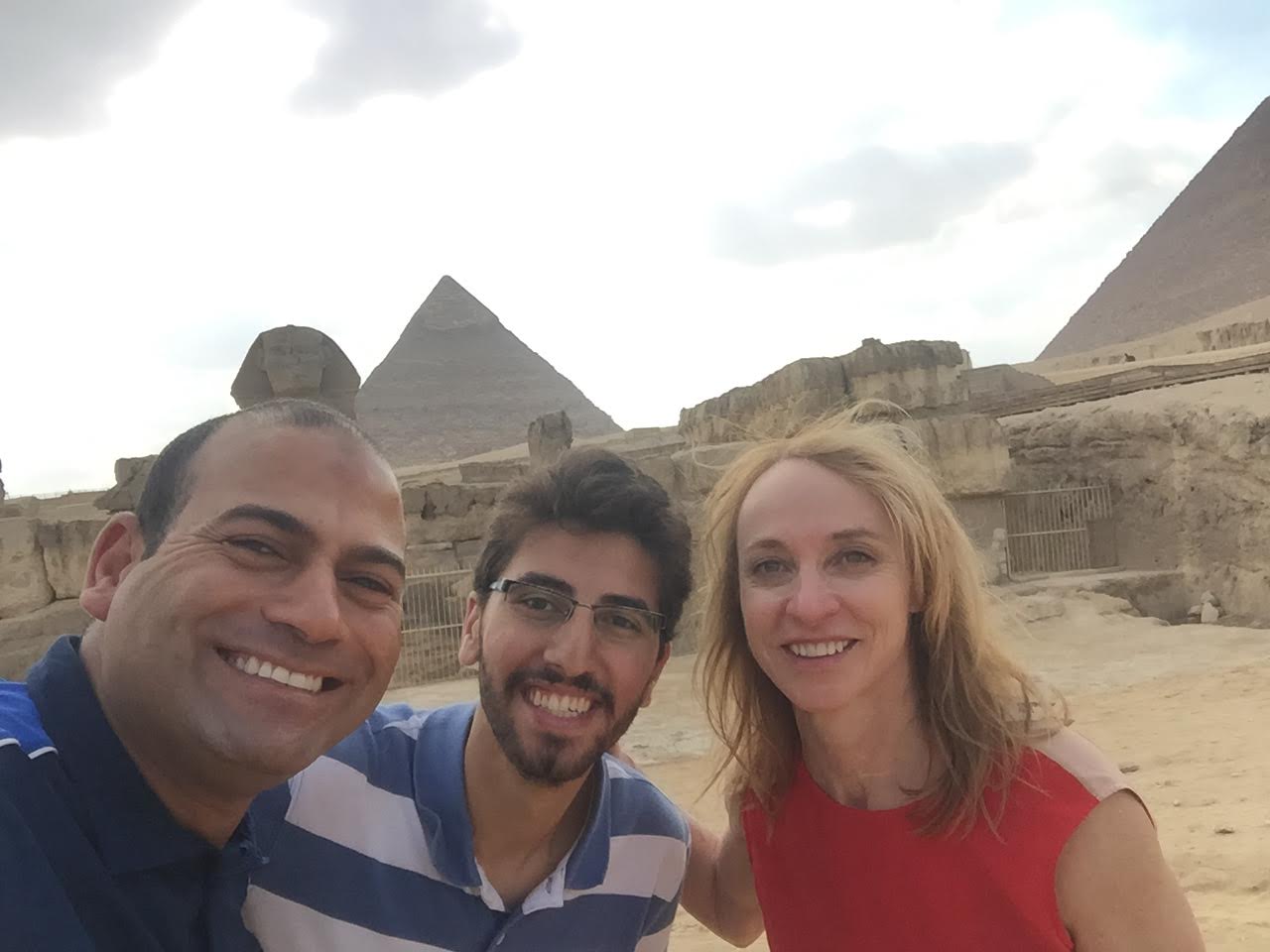
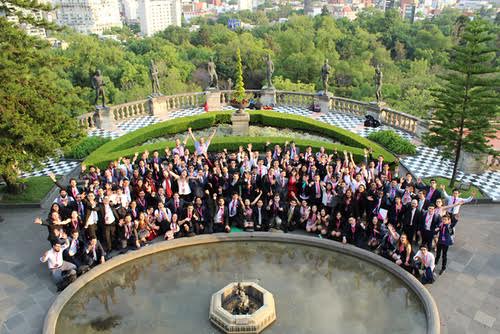
 Name:
Name: 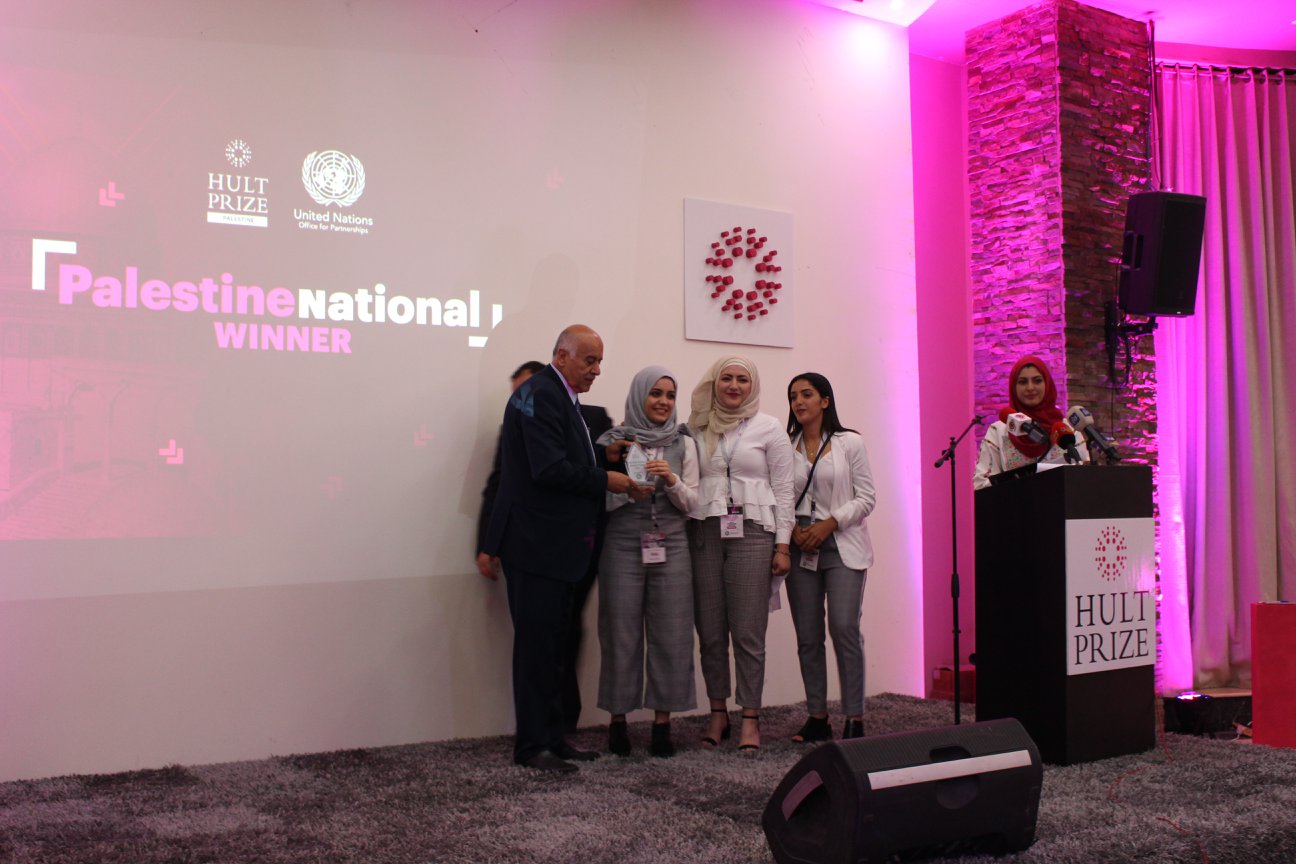
 Why is Hult Prize important to your Country?
Why is Hult Prize important to your Country?
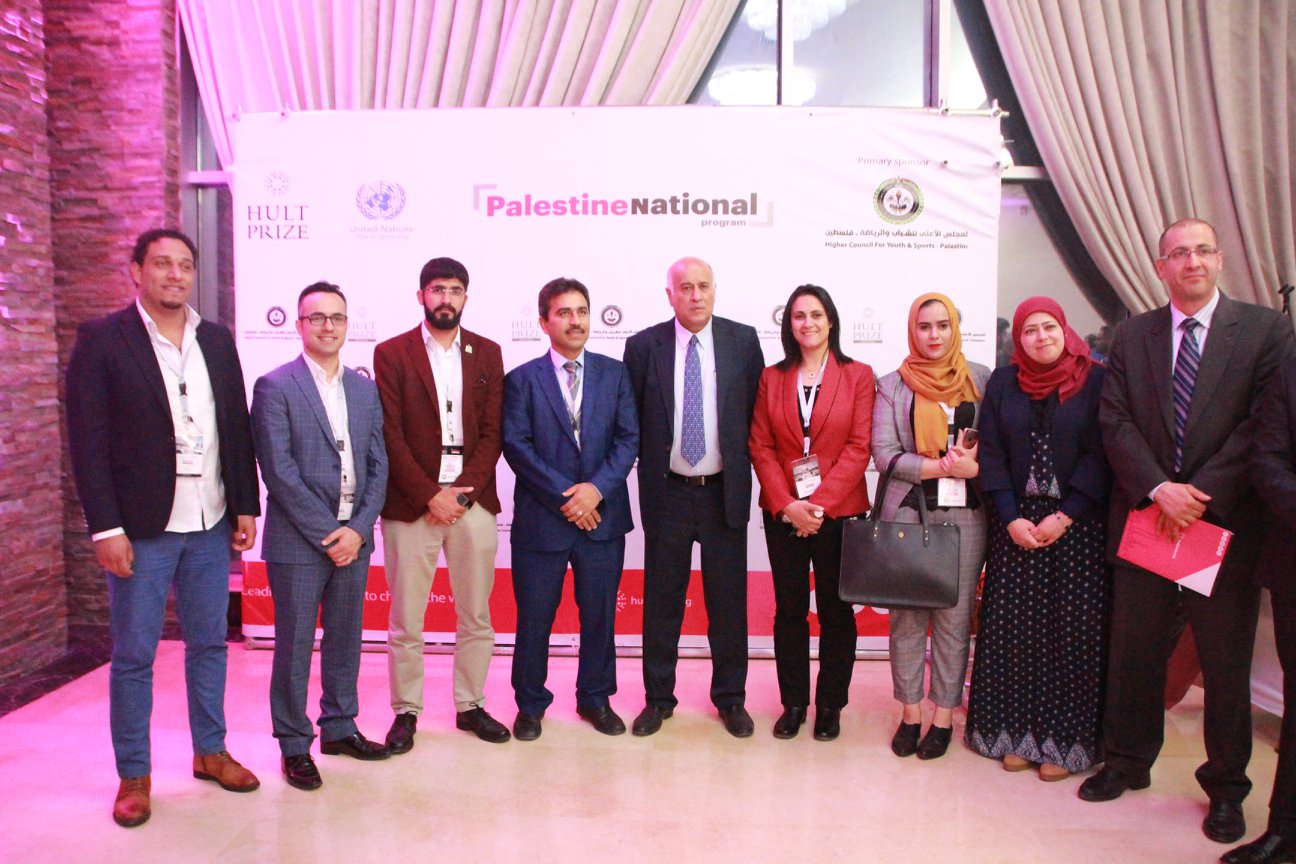


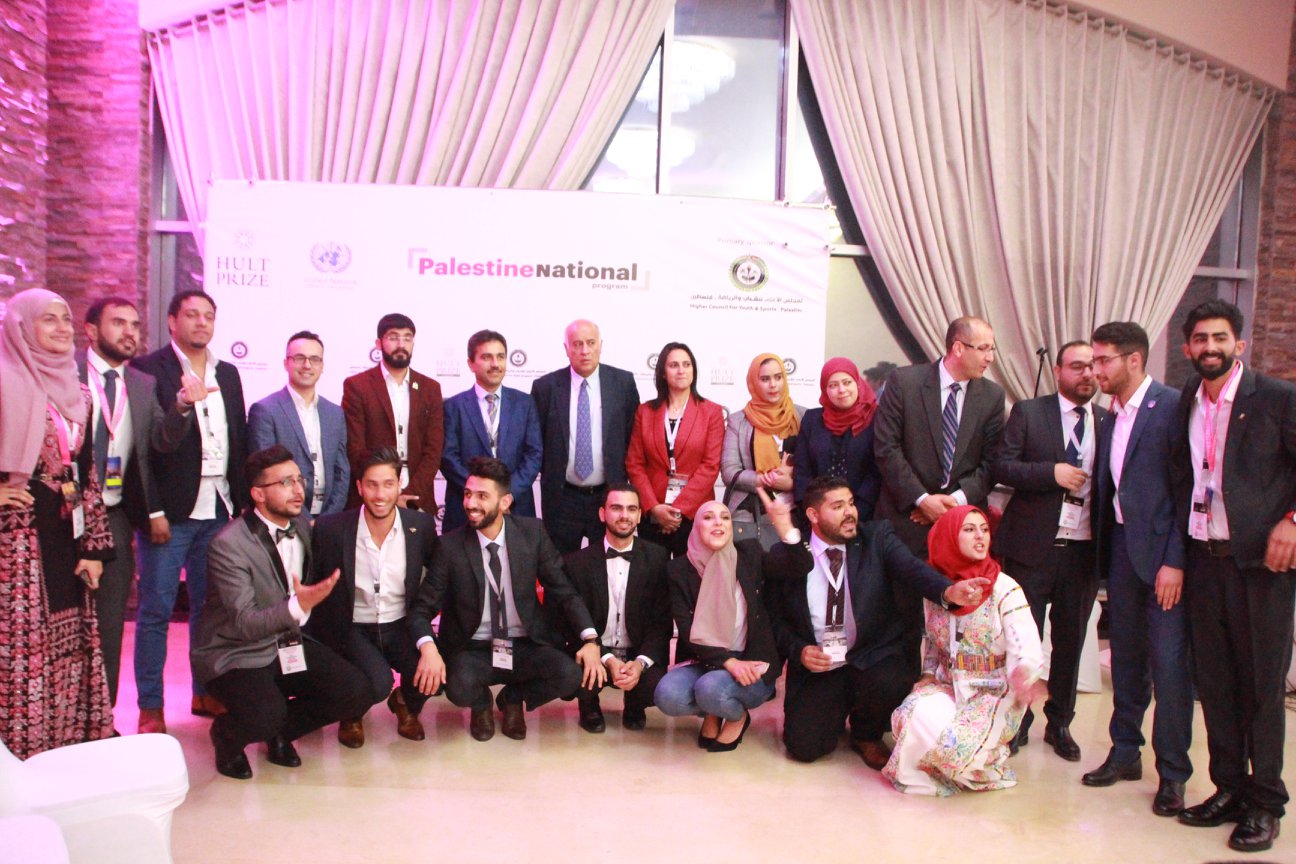
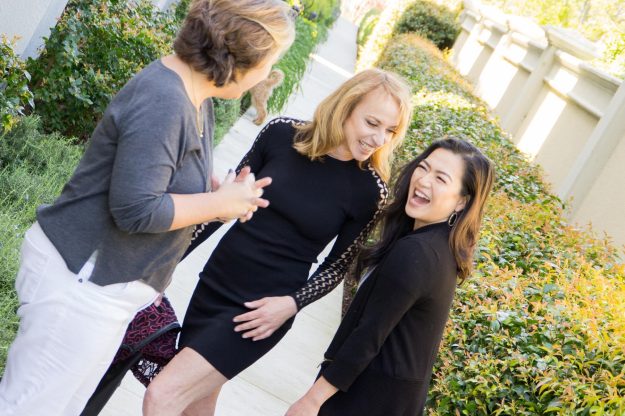

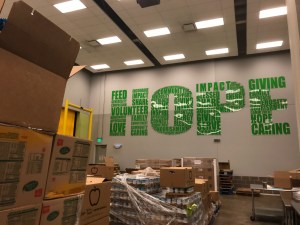

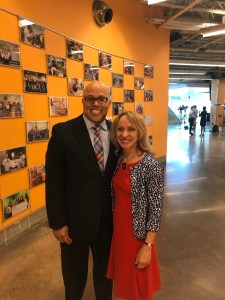


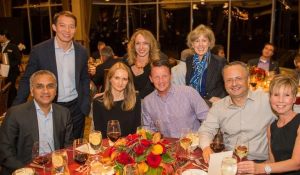
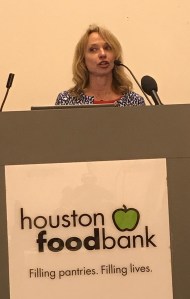

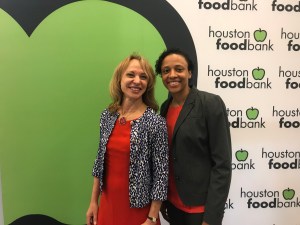

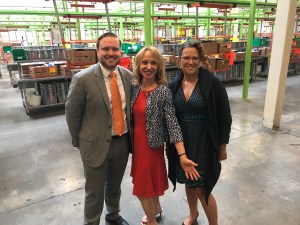





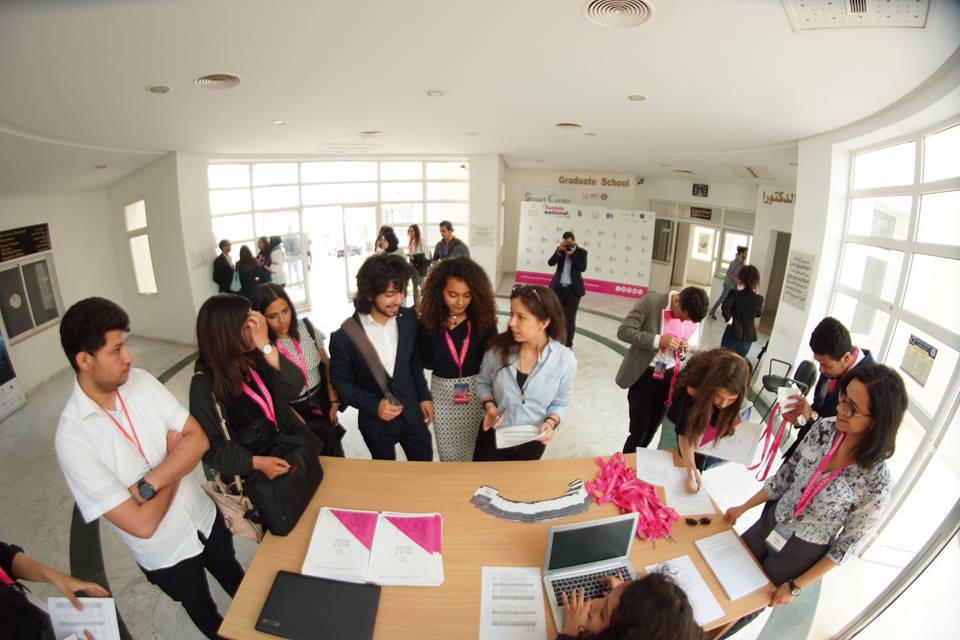
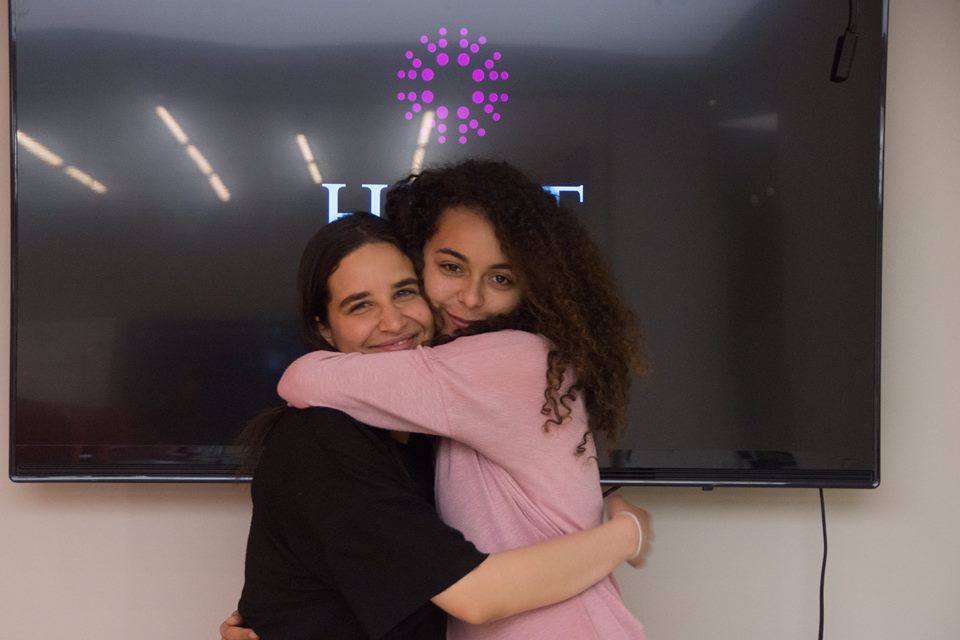
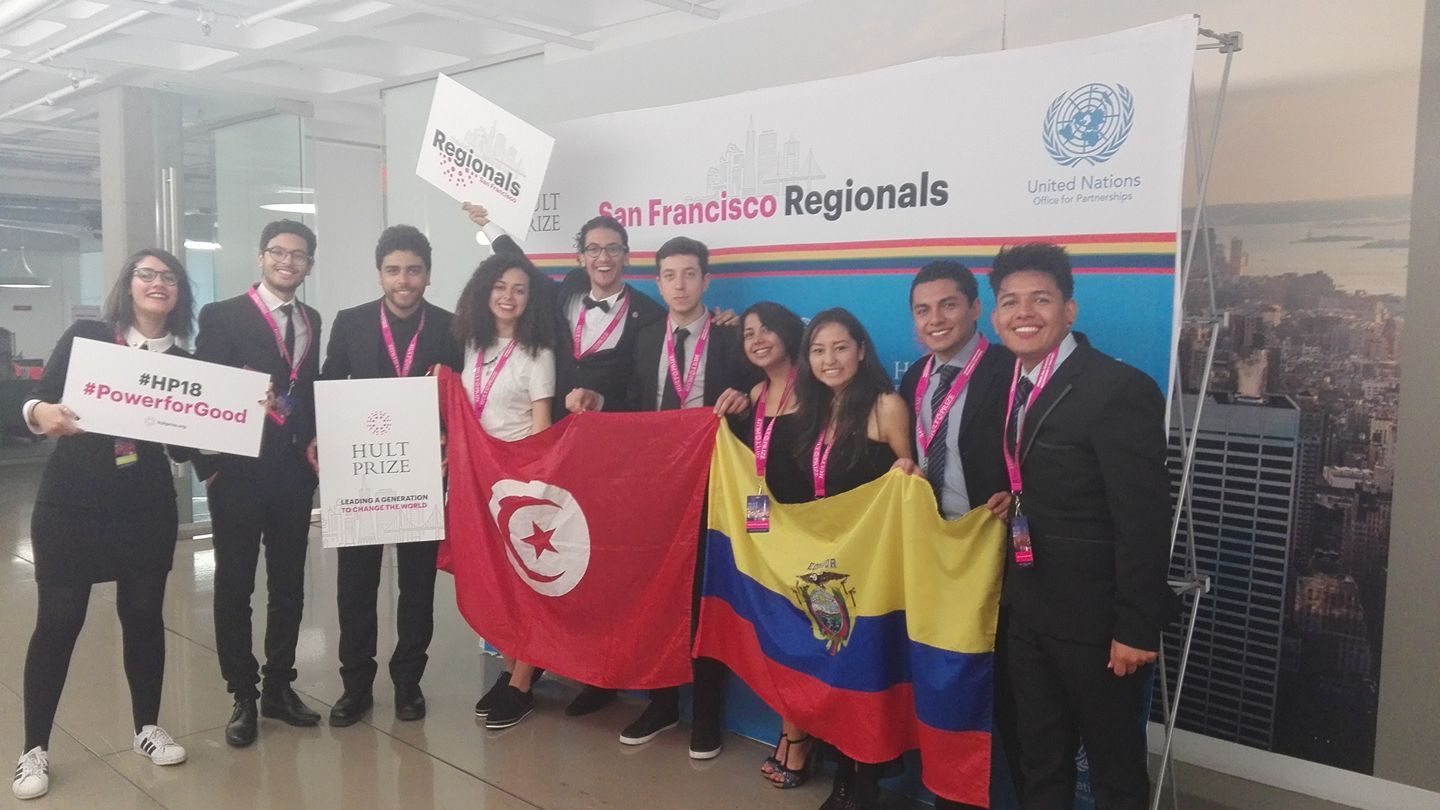


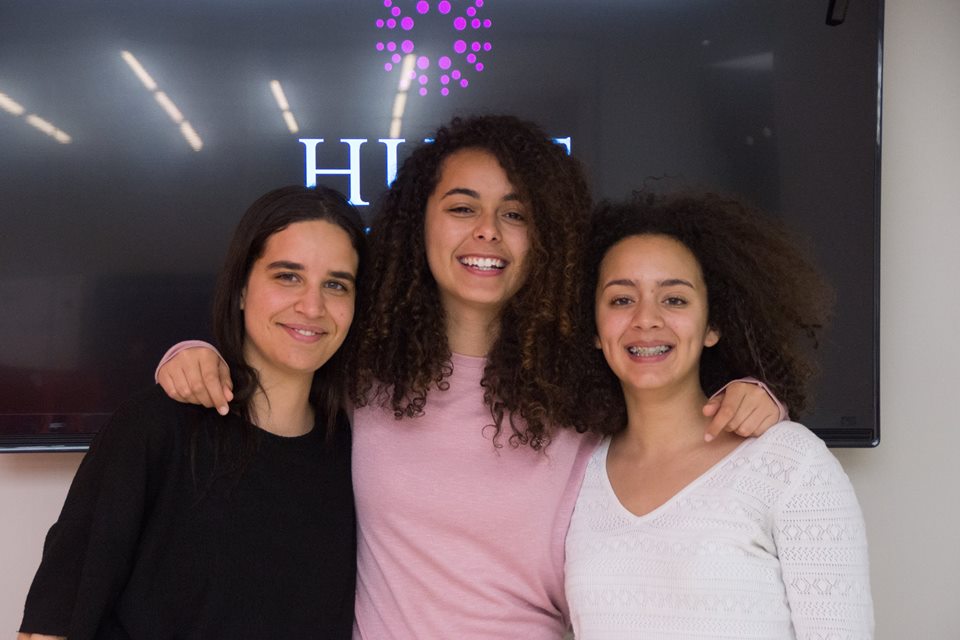

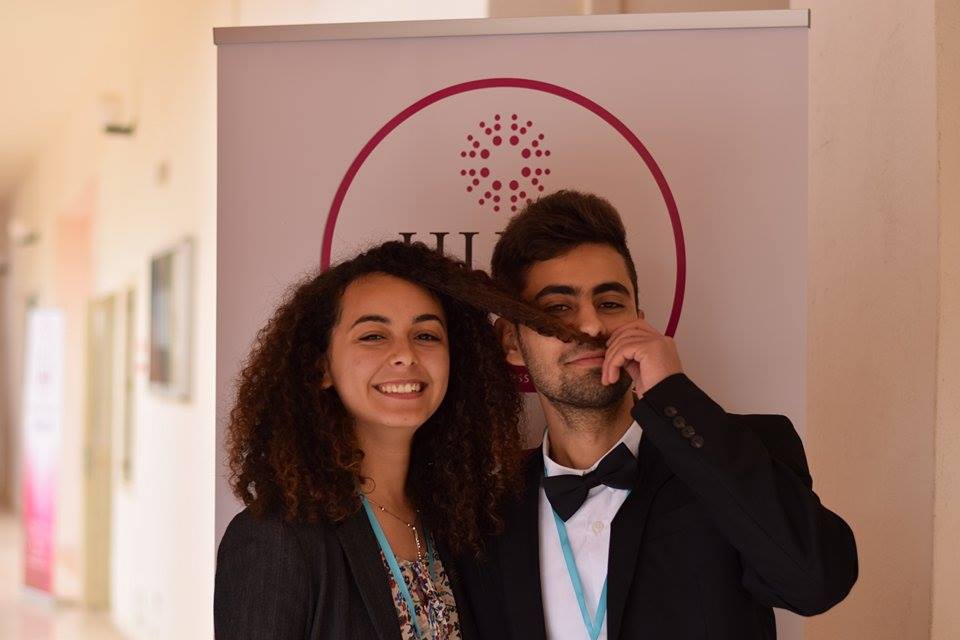

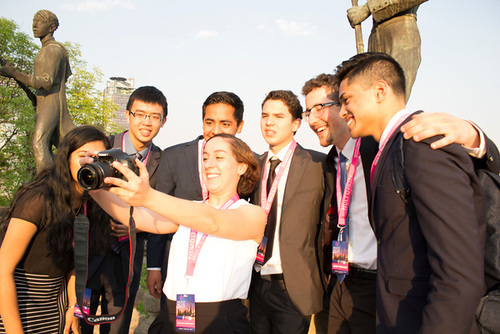
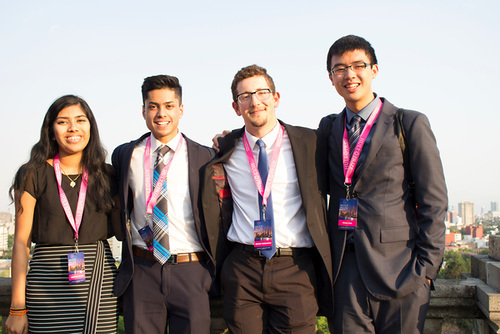



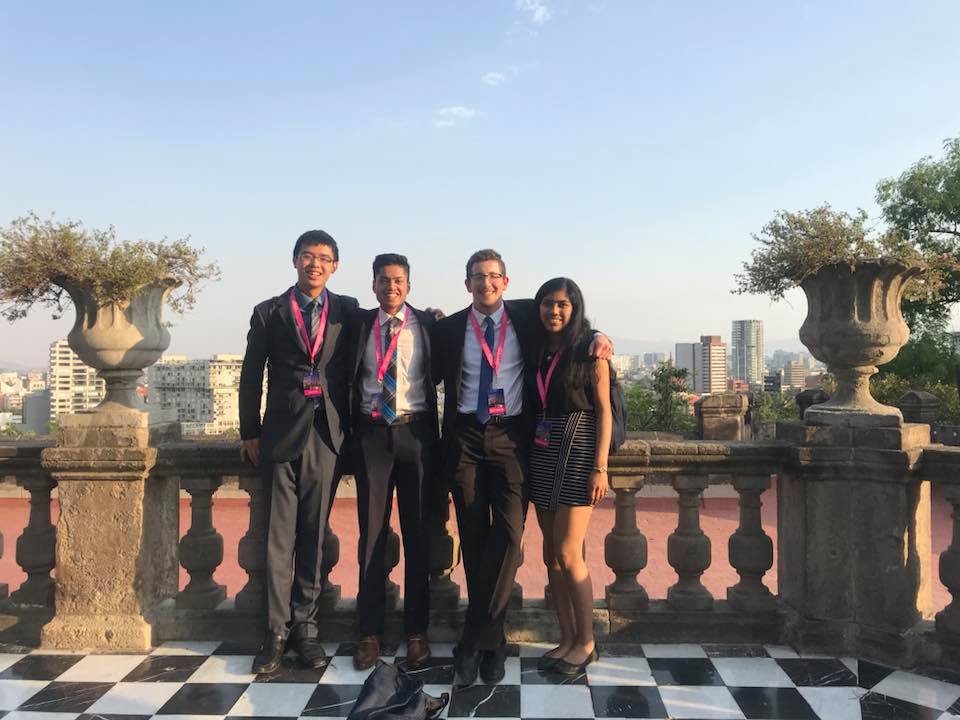


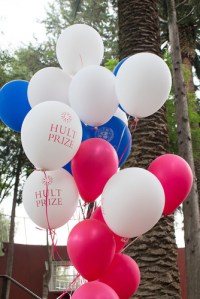

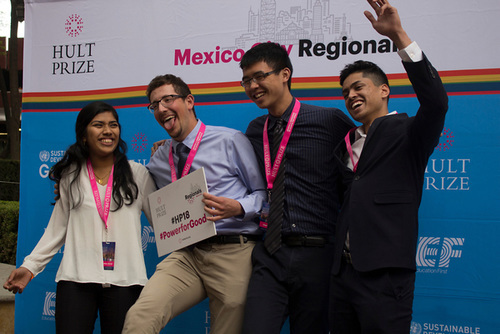
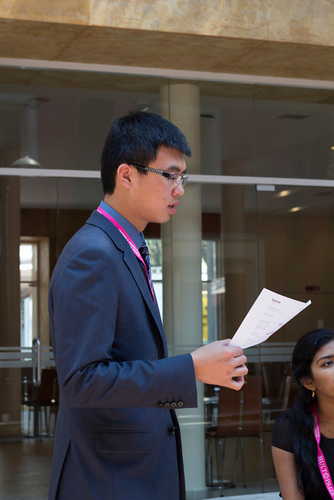




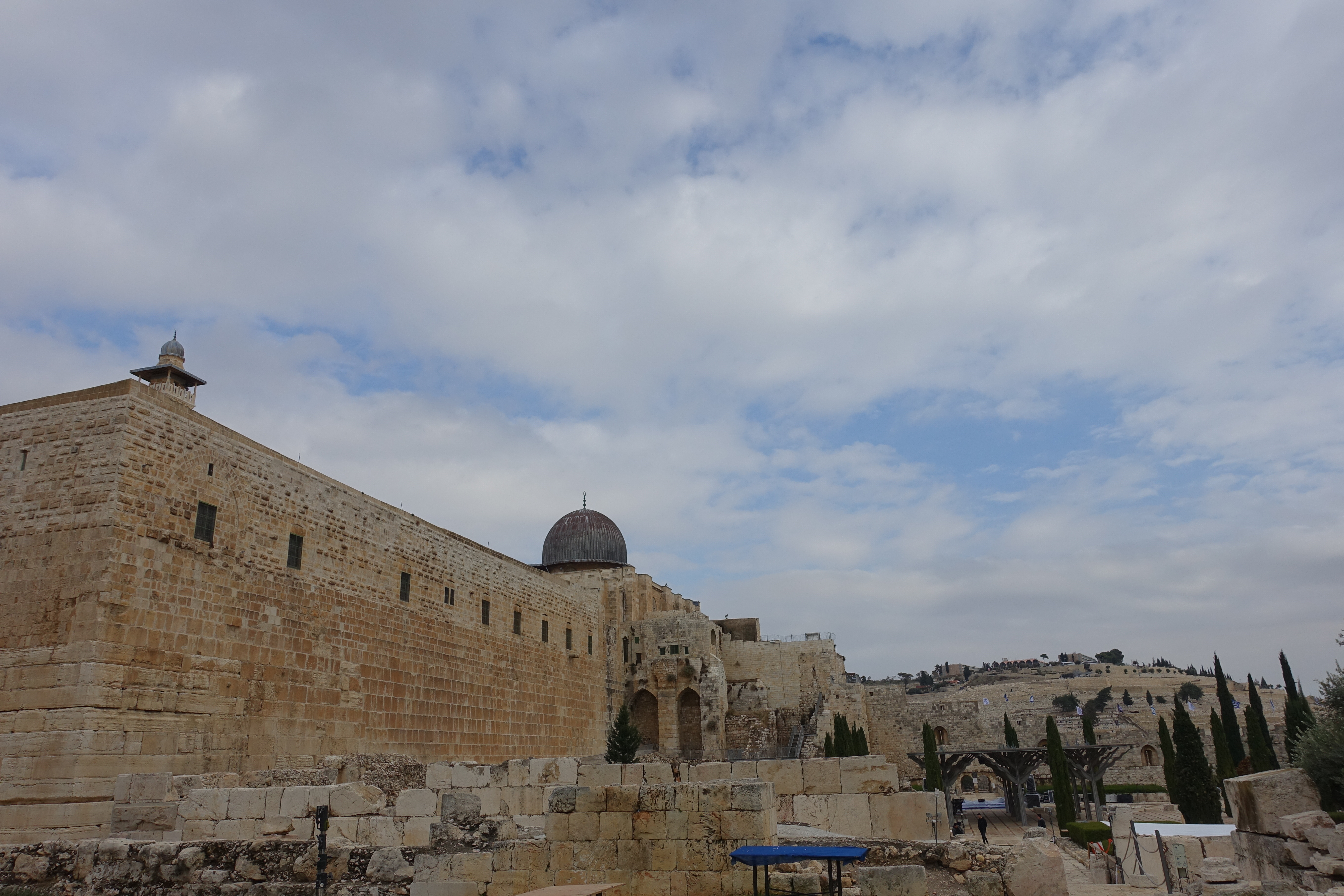

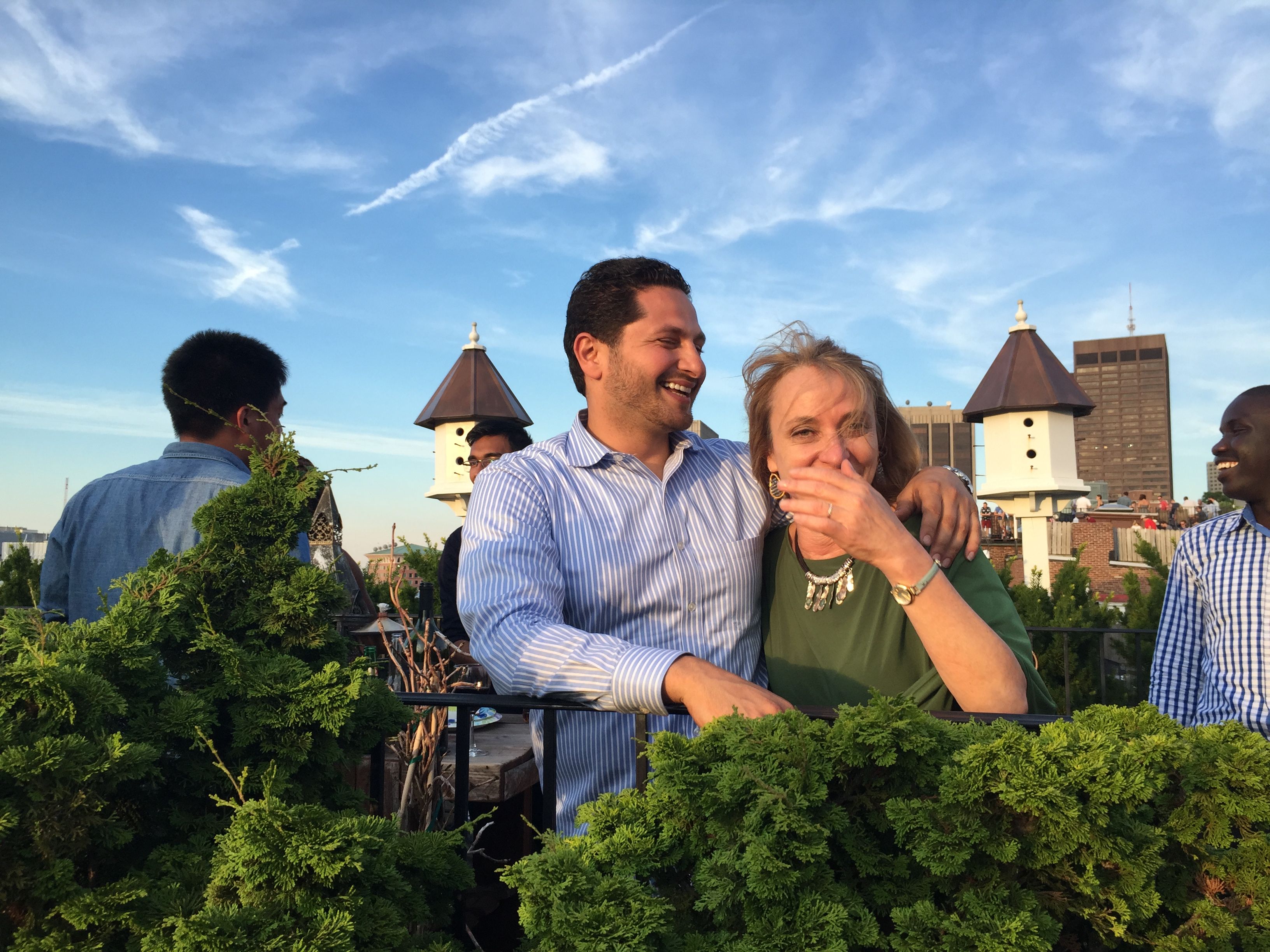

 erve a driver. Polite and courteous, yet curious, he asked only a few questions, then proceeded to offer assurances of my personal safety while also cautioning me that conditions can change at any time.
erve a driver. Polite and courteous, yet curious, he asked only a few questions, then proceeded to offer assurances of my personal safety while also cautioning me that conditions can change at any time.